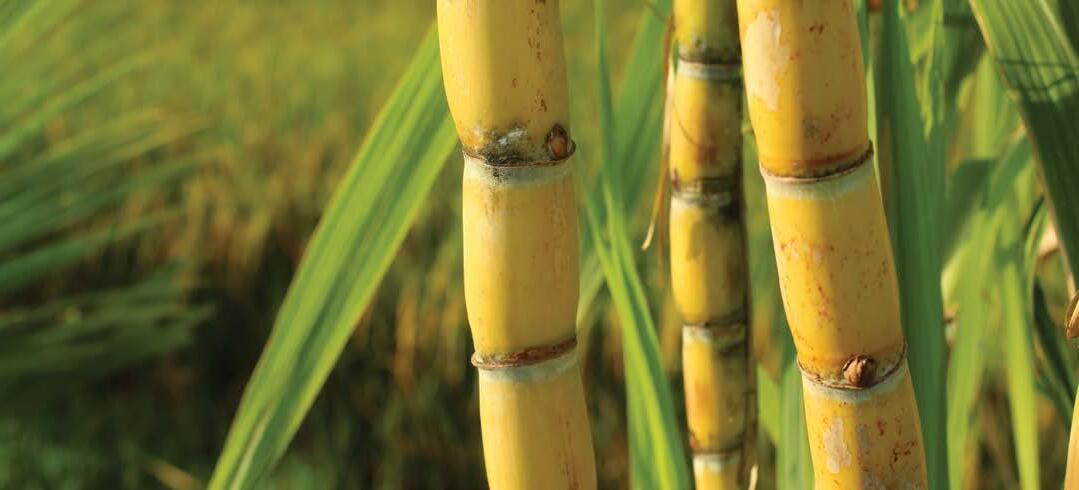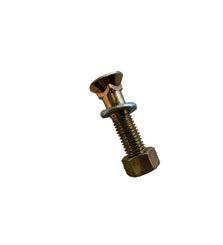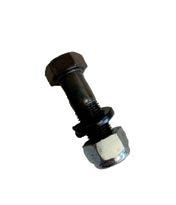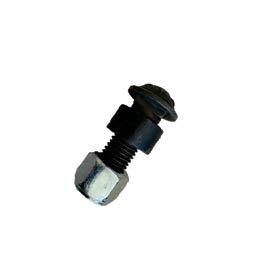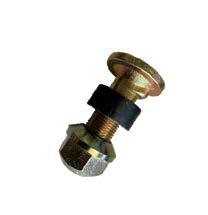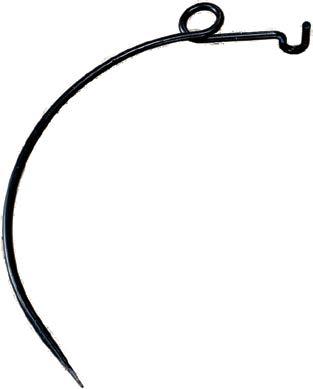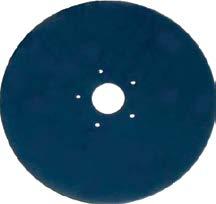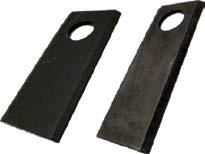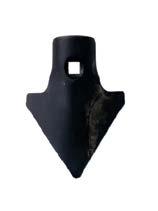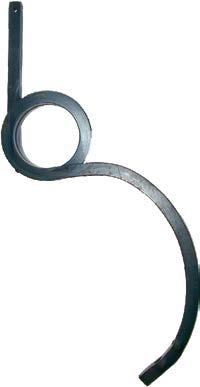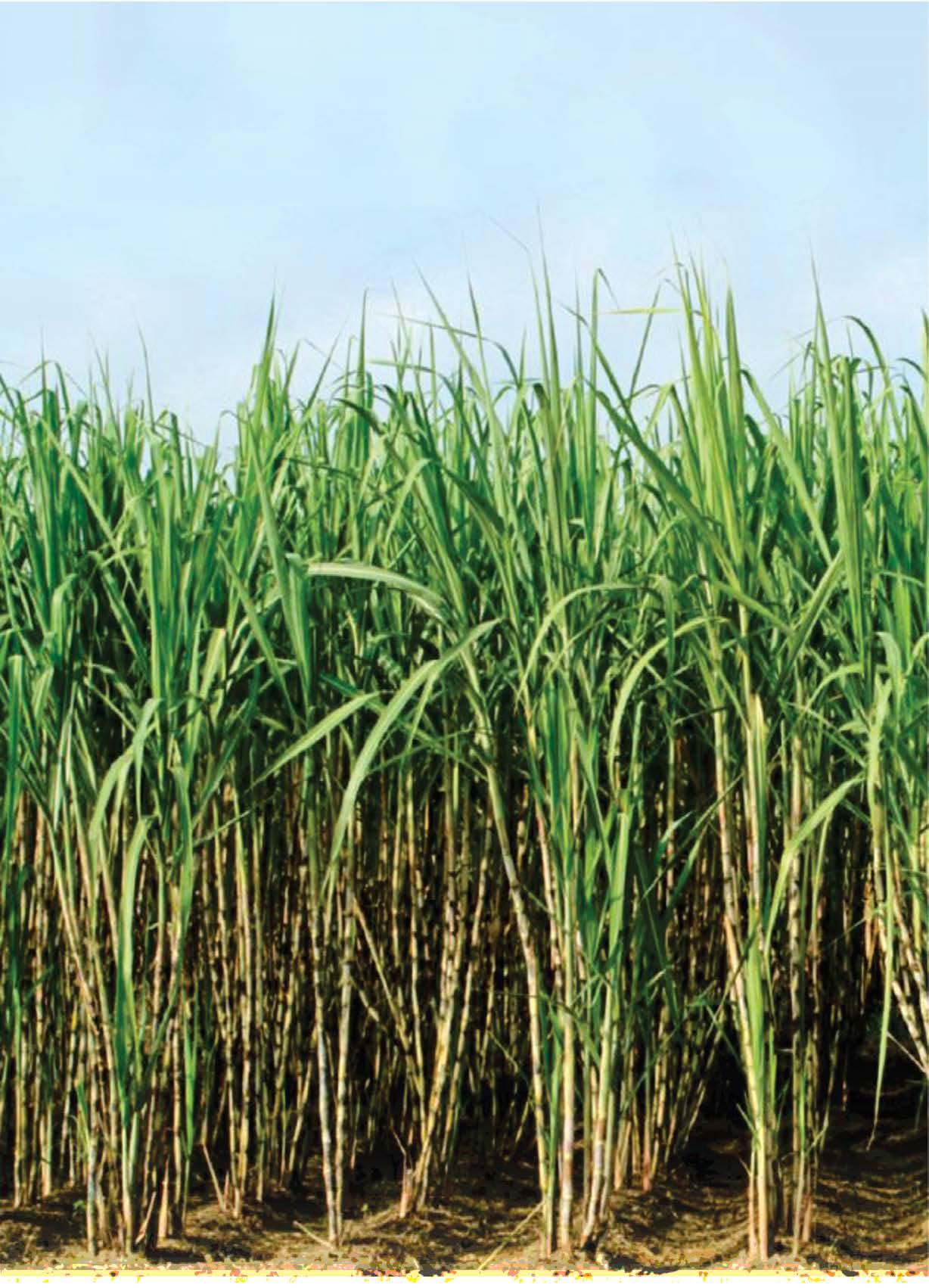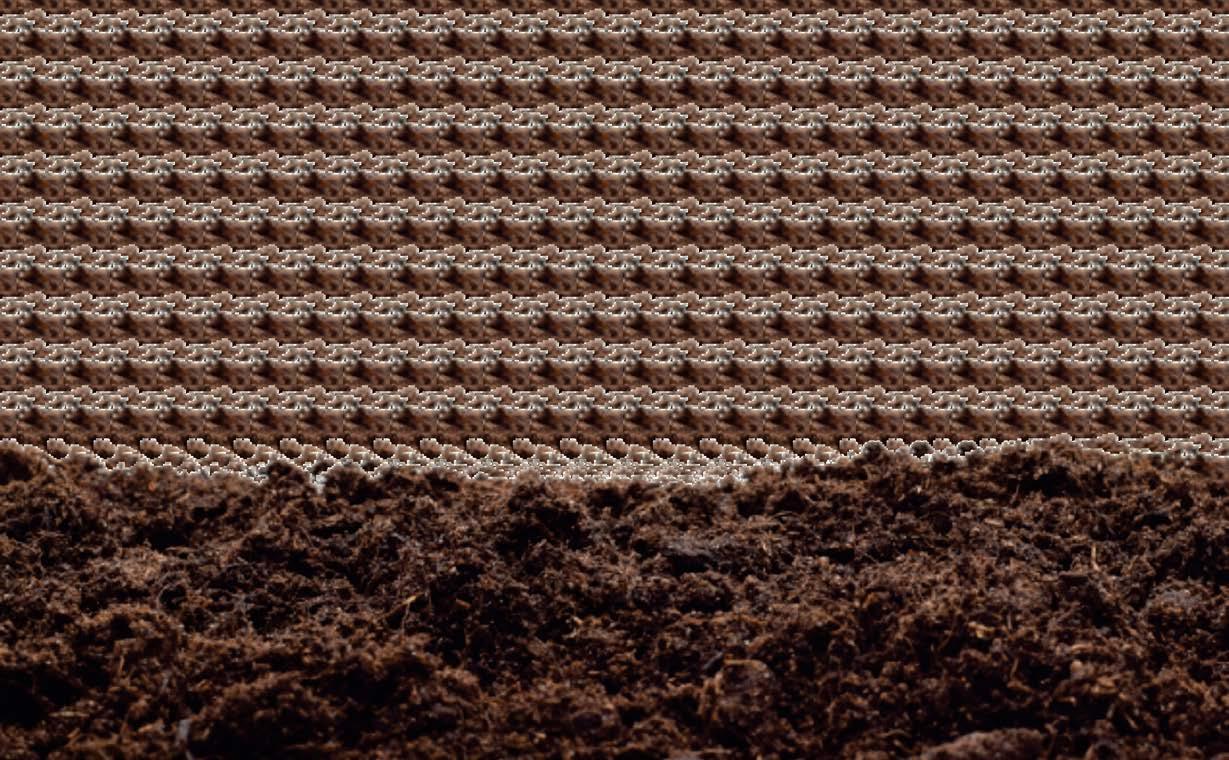SUCCESFUL SUCCESSION
FAMILY FOCUS IS ON THE FUTURE






FAMILY FOCUS IS ON THE FUTURE







Utrisha® N can convert atmospheric nitrogen to a plant-available form inside the leaf.
This ground-breaking foliar-applied technology supplies supplemental nitrogen to the crop throughout the growing season, giving growers more flexibility with their nitrogen management strategies.
Utrisha® N is a biological solution that works with a variety of crops for improved plant health and increased yield potential.
Embrace a balanced future

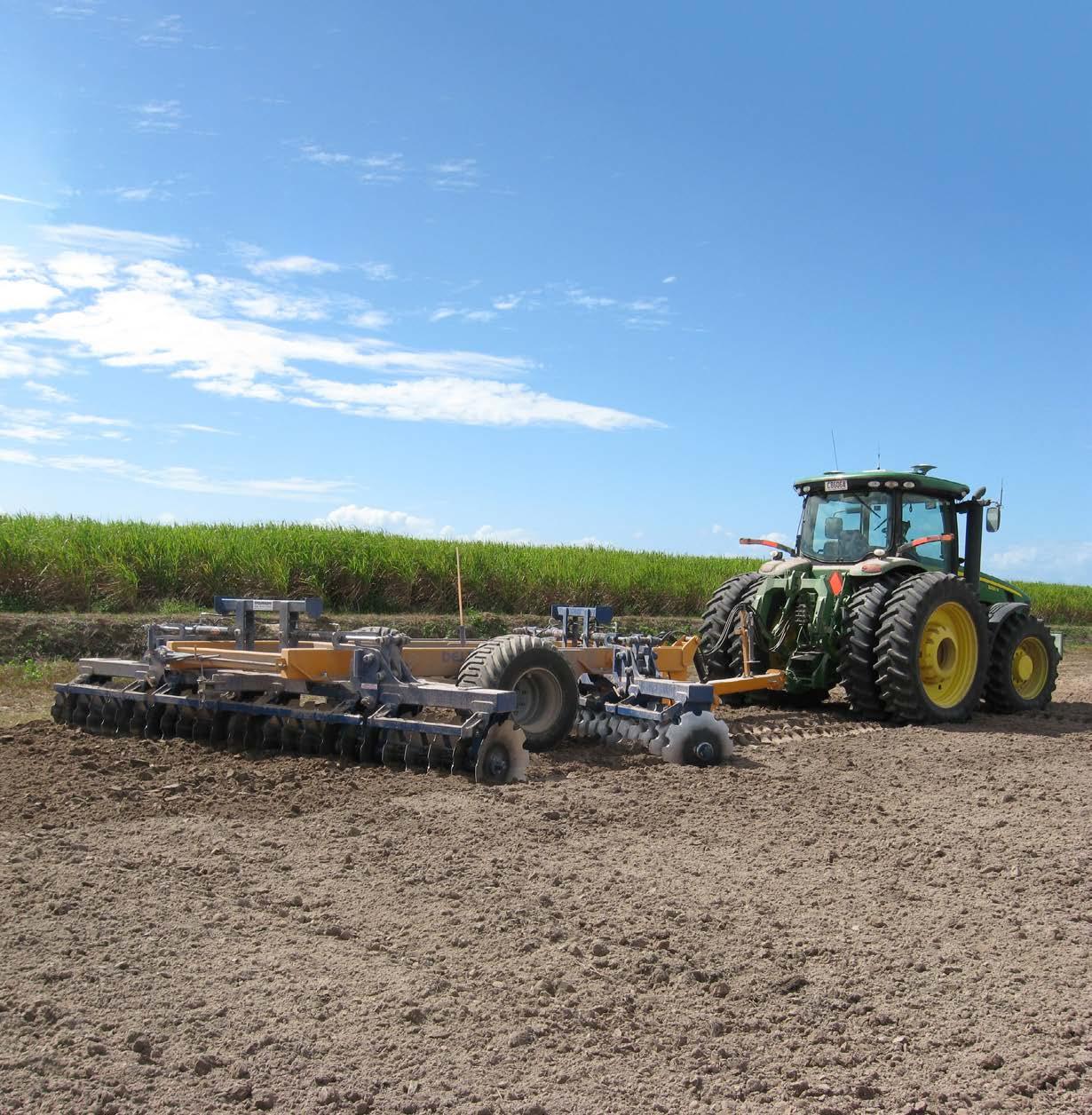
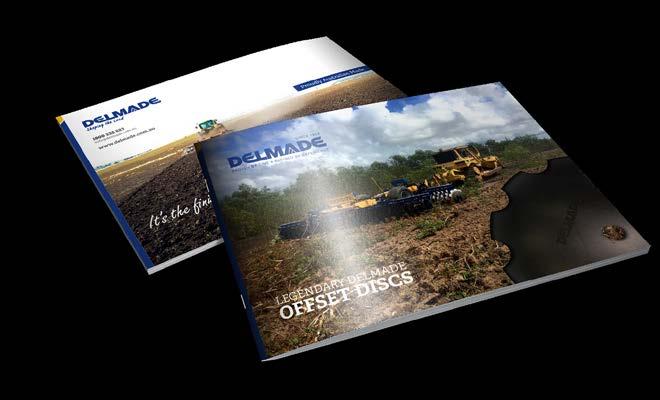
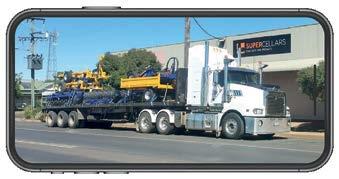
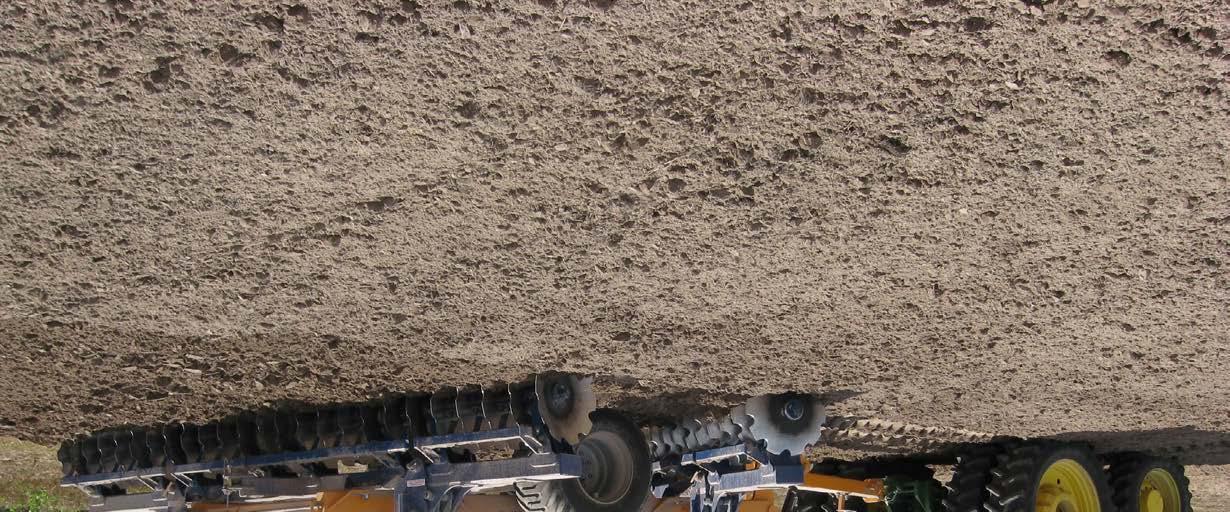
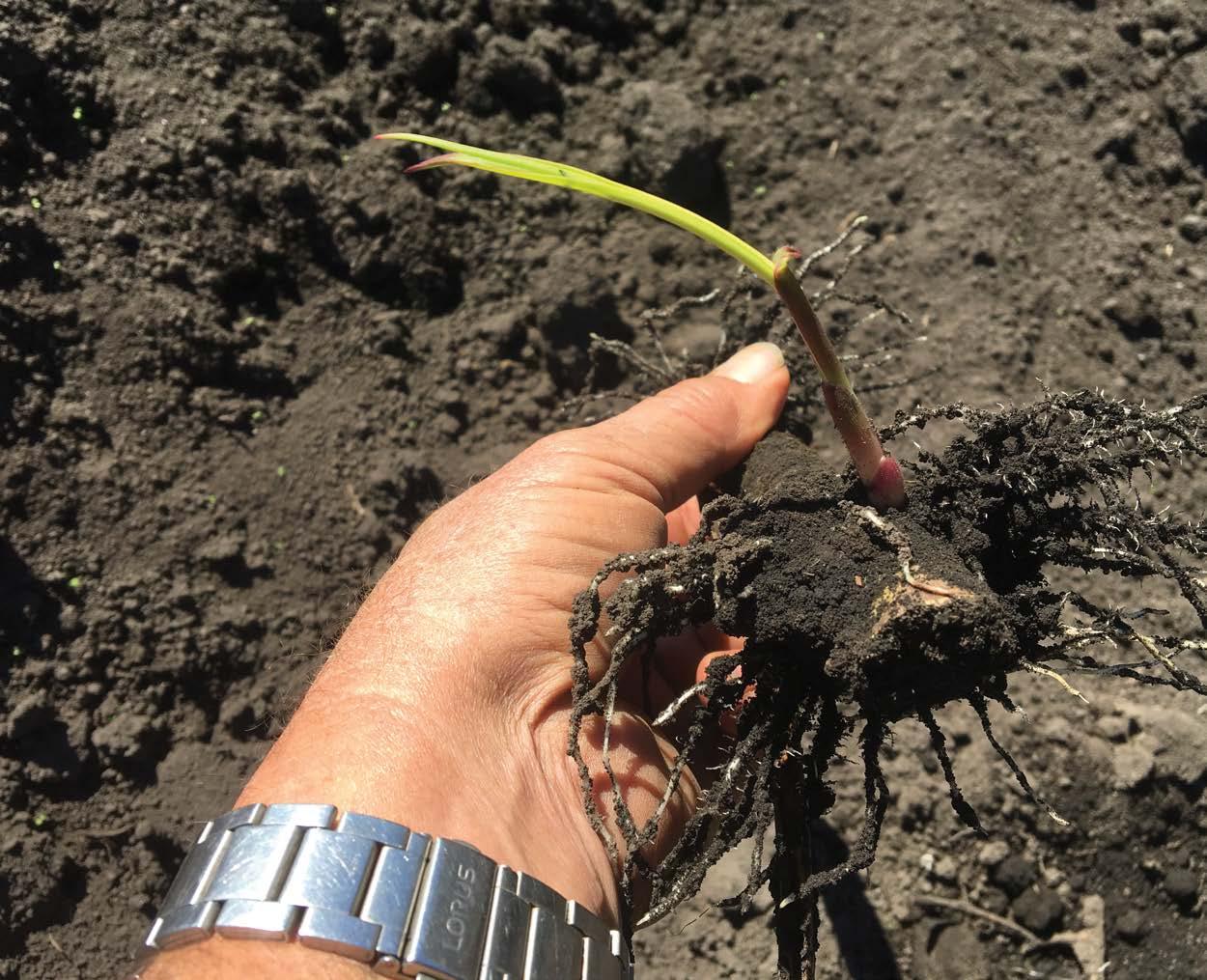
PLANTSTARTER21 delivers faster plant uptake and safer application options to protect your planting investment.
PlantStarter21 also includes bio-stimulants from two di erent seaweed extracts to help increase root mass and support ultimate nutrient take up.
Independent r esearch undertaken by the University of Southern Queensland shows PlantStarter21 to reduce nitrogen leaching by 24%, support up to 98% faster strike rate and 52% greater shoot length when compared to granular fertiliser.
Like all LiquaForce liquid fertiliser products, PlantStarter21 delivers the added advantage of allowing you to plant much more area per day with less labour and machinery required to get the job done, saving you time and money.
Get your plant cane away faster and stronger with PlantStarter21 and capture the full potential of your crop this season!
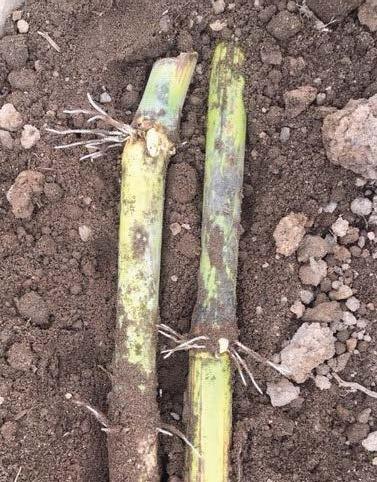
ROOT EMERGENCE JUST 72 HOURS POST PLANT WITH LIQUAFORCE PLANTSTARTER 21
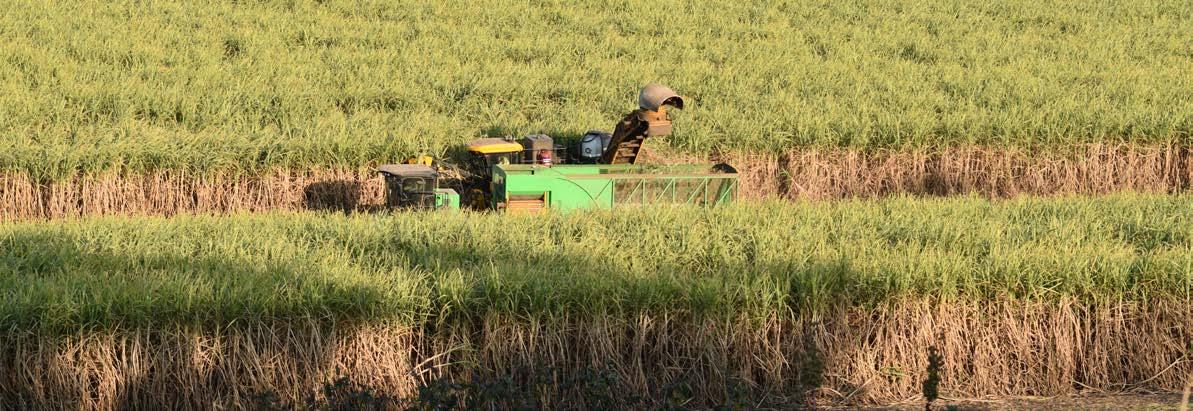
Editor: Robyn Devine
Design & classifieds: Eleanor Fraser
Articles appearing in Australian Canegrower do not necessarily represent the policies or views of CANEGROWERS.
Published monthly by: CANEGROWERS, GPO Box 1032, Brisbane, Queensland 4001 Australia. ABN 94 089 992 969
Telephone: 07 3864 6444
Email: editor@canegrowers.com.au Website: www.canegrowers.com.au
Subscriptions
Yearly subscriptions for 12 issues (postage included)
Within Australia: $190 inc GST Overseas (AUD): $290
COVER
Peter and Chelley Howe with children Thomas, Jess and David are ensuring their entity remains in the family.
Photo credit: Rock Ridge Farming
Read more on page 24
Together with representatives from 20 other sugar producing countries, CANEGROWERS Chair and CEO attended the World Association of Beet and Cane Growers (WABCG) annual conference held in Fargo, USA.
The WABCG is just one of a number of international bodies where CANEGROWERS represents the interests of all Australian sugarcane growers.
These global relationships are incredibly important, enabling growers to gather and share knowledge, while also building relationships that can assist in positioning the Australian industry.
It is through this kind of work that CANEGROWERS was able to partner with Brazil and Guatemala to bring forward the successful case against India at the World Trade Organization.
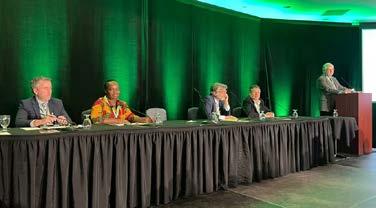
Crushing has commenced at Wilmar’s Burdekin mills following an uneasy truce between the company and unions representing mill workers.
For months, the parties have been locked in an increasingly bitter pay dispute, which stalled crushing at Inkerman Mill in June and delayed the start up of the Invicta, Pioneer, and Kalamia mills.
Following increasing calls for a resolution from CANEGROWERS and other industry stakeholders, unions announced a temporary halt to strike action on 13 June, allowing crushing to get underway.
However, with no permanent resolution in sight at Wilmar mills, and industrial action also underway at Tully Sugar,
CANEGROWERS Chairman Owen Menkens cautioned that ongoing pay disputes could still impact season length.
“Obviously we’re extremely glad to see crushing get underway at Wilmar mills, but it’s worth noting that this is only a postponement of strike action. If the parties fail to reach an agreement, we may well see crushing grind to a halt again,” Mr Menkens said.
"Tully Sugar is also in the midst of a pay dispute which needs to be urgently resolved to ensure the harvest is not further disrupted.
CANEGROWERS is calling on all parties to consider the devastating consequences protracted strike action could have on the wider regional community."
In big news, CANEGROWERS will be undergoing a digital revamp over the coming weeks.
The first step has been the launch of a new member portal. The new portal makes it easier for members to set up their own easy-toremember login details.
Once inside they have access tools specifically designed for growers, such as a Cost of Production tool and Sugar Price Ready Reckoners, legal advice articles, marketing information and updates, transport guides, and exclusive membership offers.
Invites to set up a CANEGROWERS member portal login have been rolled out via email over the past few weeks. Invitations were sent to the email address registered with your membership so if you haven't seen it yet, check your inbox and spam folders.
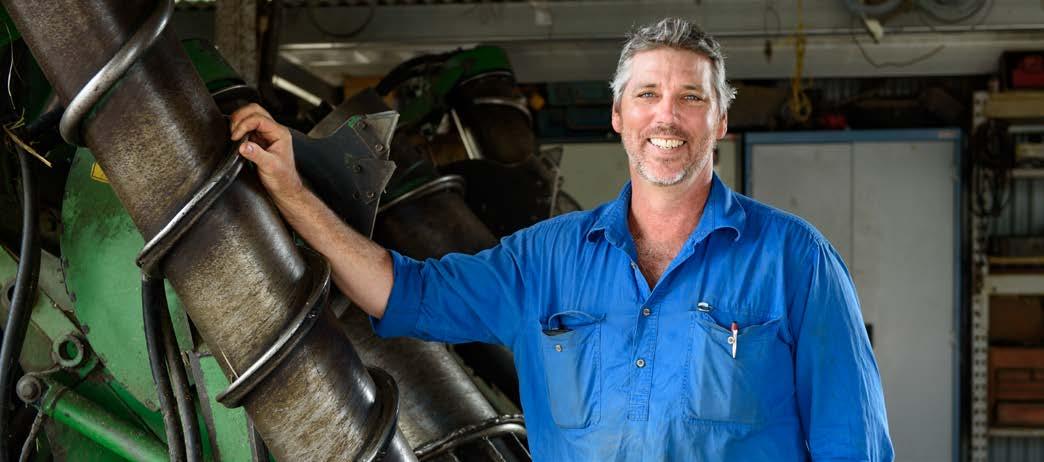
The race is on to get Mossman’s cane crush underway, following confirmation the State Government would chip in up to $6 million towards the cost of transporting the cane 100kms south to MSF’s Mulgrave Mill.
Following months of intensive negotiations between CANEGROWERS Mossman, the local Douglas Shire Council, Douglas Chamber of Commerce, MSF Sugar and the Queensland Government, Premier Steven Miles announced the government would cover nearly half of the transport costs.
“This is a good economic outcome for the industry, with growers looking to recoup some of the $15 million they have put into getting this crop ready,” CANEGROWERS CEO Dan Galligan said.
“I’d like to thank the Premier, as well as Minister for State Development Grace Grace and Minister for Agriculture Mark Furner, for listening to grower concerns and taking action to ensure Mossman’s 2024 sugarcane crop can be cut and crushed.”
While many Mossman growers were looking to enter into a commercial cane supply agreement with MSF, the reality is that without the government, milling company, and growers sharing in the transport costs, the project would be economically unviable.
“Growers will still need to pay up to $12 per tonne for transport costs, so for some the finances of this arrangement are tight, but they are determined that this crop should be turned into an economic outcome.
"This arrangement gives growers certainty around this year’s crop and also provides some breathing room so growers can take a little time to consider their next move.”
CANEGROWERS Mossman Chairman Matt Watson said the government’s commitment was a huge relief for local growers.
“For months we’ve been in limbo, not knowing if someone would swoop in and save the mill or if our crops would be left to rot in the paddocks.
“MSF making a commercial decision to receive and crush the cane was the critical first piece of the puzzle, and I’d like to acknowledge the team at MSF for their diligence and persistence in making that happen.
"Finding a funding arrangement to cover the cost of transport has been the stumbling block to making this venture a reality. It’s been an anxious time for growers, but we can all take a deep breath now and start preparing for the crush.”
Mr Watson said there was still plenty of work to do before harvesting could get underway.
“We have plenty of planning to get harvesters ready to fire up, and the mill is also making preparations. But now that we know the harvest is going ahead, it’s all hands on deck to make this happen.”
CANEGROWERS provides free crop insurance* to members. The premium is paid by CANEGROWERS on behalf of members and will cover growers against accidental
This


There have been some movements across the range of tariffs available to growers. Now is a good time to review your options!
Use our CANEGROWERS Tariff Tool to review your usage and cost across the options.
It has been a mixed bag of increases and decreases amongst the various tariffs, as well as between variable and fixed cost rates, so depending on your pattern of use, things may have changed in terms of which tariff would be most cost effective. The tables, on this page, provide a snapshot of tariff movements for the most popular options for small businesses.
Tariffs 20 and 34 have had similar movements so would probably not warrant any change between the two if you undertook an assessment last year (note that tariffs have been rounded to one decimal place). Variable rates are c/kWh and fixed costs are c/day.
The popular Tariff 22C has however seen some significant adjustments between the time-of-use windows. Unfortunately, this reduces the opportunity to adapt schedules to make the most out of off-peak and shoulder periods which had offered low tariffs to promote usage during these typically low-demand periods.
A key driver of cost changes this year has been the network cost component. In general, the energy cost component has decreased, but at the same time there has been a notable increase in network costs (determined by the Australian Energy Regulator (AER)).
According to the AER, the main drivers were updates to inflation, the regulated rate of return and increased transmission costs. Other factors include adjustments for incentive scheme rewards or penalties and any previous under or over-recovered allowed revenues for each distributor.
Growers are reminded that they can visit the Queensland Ag Energy
Hub, which provides a centralised location with information for farmers navigating the energy needs and requirements of their operations (visit www.qldagenergyhub.com.au).
This includes reducing expenditure and case studies from farms that have successfully implemented savings initiatives, as well as fact sheets on pumping, irrigation, energy efficient farm buildings and more.
Access the CANEGROWERS
Tariff Tool
Update from the load restraint task group led by CANEGROWERS and including Australian Sugar Milling Council (ASMC) and the National Heavy Vehicle Regulator (NHVR).
This task group was formed to address any potential issues arising with regard to the sugarcane industry’s compliance with the Heavy Vehicle National Law loading and load restraint requirements and to ensure safety during the transport of sugarcane on roads.
This was partly initiated to understand what may change with NHVR taking over the compliance role from Queensland Transport and Main Roads in April this year.
In general, NHVR has advised that they will increase heavy vehicle compliance activity across the state, and this will mean more heavy vehicles will be pulled over for inspection.
When heavy vehicles are pulled over, even if fully compliant, NHVR Safety and Compliance Officers (SCOs) may
ask a standard series of questions to gather information and inform their monitoring activities. This is not targeted at the sugarcane industry but will include heavy vehicles hauling cane.
However, if a vehicle is not compliant with the load restraint requirements i.e. spilling cane and is pulled over either in a general inspection at a fixed site or a random patrol, then the SCOs will record additional information like the cause of the loss of load, the type of sugarcane load loss, location of loss of load, is the bin covered, posted speed and ask other questions about the loading and point of origin of the vehicle.
This does not mean that there will be no infringement action. This is up to the discretion of the SCO on site.
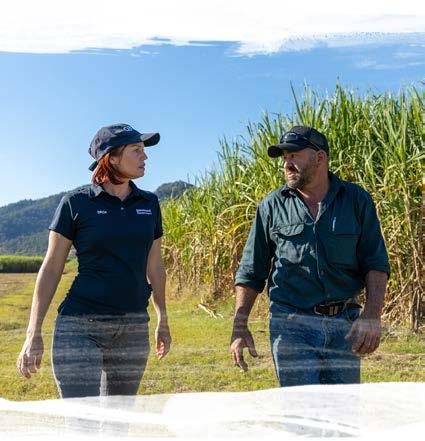
Purchase
However, the NHVR enforcement policy is generally to educate, warn and then issue infringement notices when necessary (informing, educating, monitoring and enforcing the Heavy Vehicle National Law).
The main aim is to gather information and collect evidence to identify the areas which pose the greatest safety risks so that as an industry we can adopt measures to address them. Finally, as the season gets underway it is important to remember the following:
A load must be secured so that it is unlikely to fall or be dislodged from a vehicle and not be loaded in a way that makes it unstable or unsafe
A vehicle does not have to have a cover if the load is contained and not spilling cane




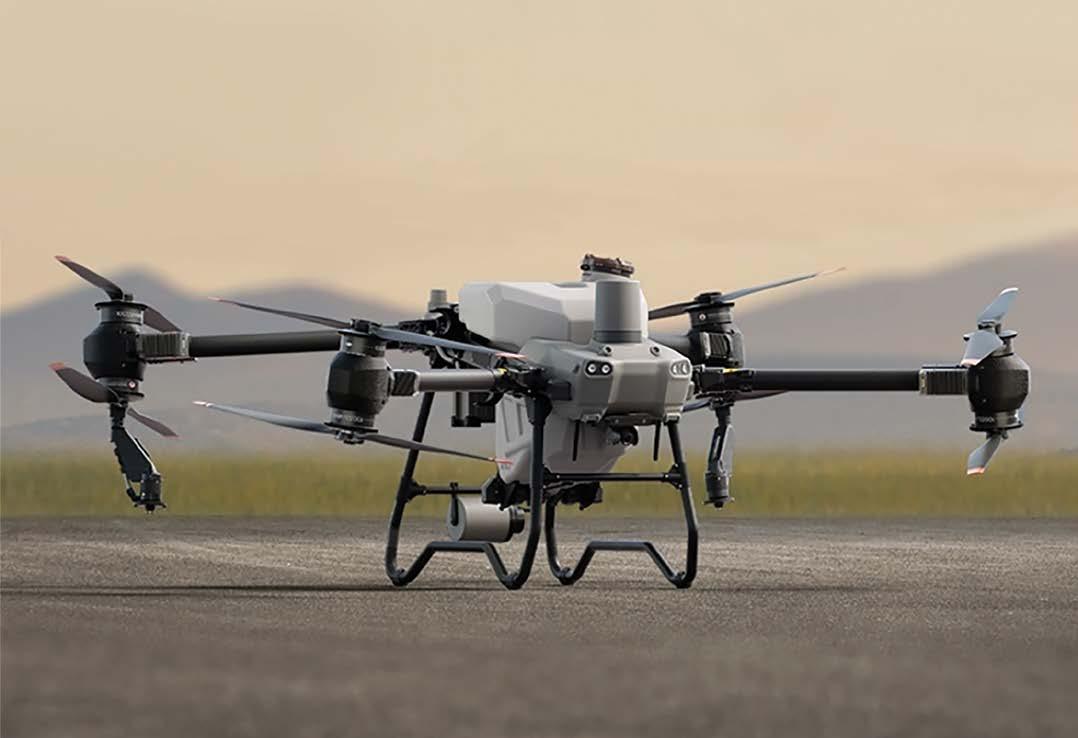
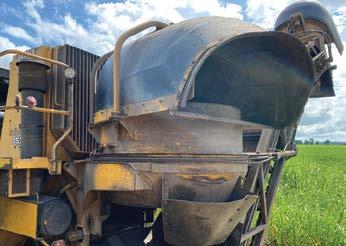

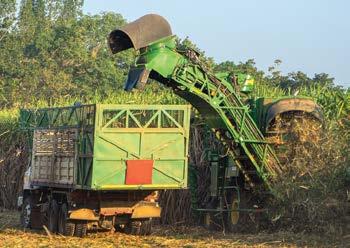
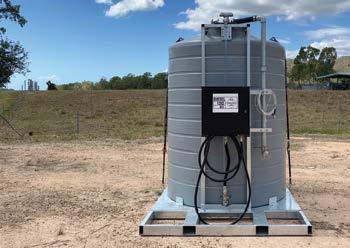
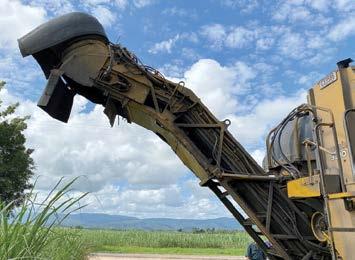
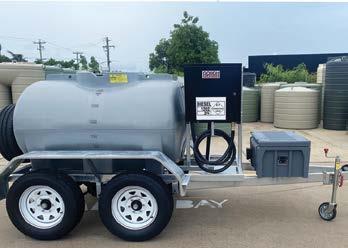

BY DAN GALLIGAN, CEO, CANEGROWERS
The recent State Budget was absolutely pitched at meeting the cost-of-living pressures.
The sweeteners on offer included generous rebates on electricity bills, very cheap public transport fares for six months, and free kindy.
In what was a seen as a huge political risk, prior to budget night the LNP opposition made it clear they would fully support all budget provisions.
In reality, it was mostly political theatre.
Oppositions in Queensland rarely reject government budgets, and with a unicameral parliamentary system it wouldn’t matter if they did, as the government can pass their budget at will.
What it did do was de-politicise the budget.
But that will only delay the real political manoeuvring.
As we hit the second half of this year, the real political campaigning will begin.
This year’s state election is shaping up to be one of the most fascinating for many years.
The Miles Government is lagging in the polls and looks on the verge of defeat. Other than two spells in opposition from 1996-98 and 2012-15, Labor has been in power since 1989.
But Queensland feels like a very different place today, compared even to our last election in 2020.
The electorate is still getting used to fixed four-year terms, while the economy is still clawing its way out of the impacts of COVID 19.
Yet there is a huge policy and economic shift underway, bought on by the dual drivers of the Queensland emissions reduction target of 75% (reduction on 2005 levels) by 2035, and its associated policy of a shift to renewable energy sources, with a renewable energy target of 80% by 2035.
These two “hand in glove” government targets, which are the driving force behind many economic policies and investments in this state, were not a consideration just two elections ago.

So, how does agriculture policy fit in within this dynamic.
At CANEGROWERS , we are well advanced in working with the Queensland Farmers’ Federation to finalise our election platform.
Between emissions reduction, cost-of-living pressures, and renewable energy, one thing is for sure, agriculture policy is front and centre in this election.
We must see this as an opportunity.
We are being, and must be, proactive in policy development to ensure the politicians see the intersection between food, fuel, profitability, and sustainability.
The risks of perverse outcomes from politicians who set bold, yet popular targets, without understanding the tradeoffs or the context, are obvious.
You can be assured that while the harvest will no doubt have its challenges, and while growers are working hard to get the crop off, at CANEGROWERS , we are working over the next crop of Queensland parliamentarians.







75 g/kg isoxaflutole +
g/kg terbuthylazine
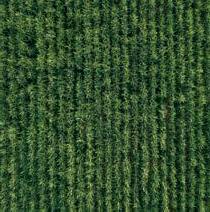

200 g/L fipronil 900 g/kg diuron


720 g/L 2,4-D DMA + IPA

75 g/L picloram + 300 g/L 2,4-D

g/L fluensulfone 750 g/kg isoxaflutole


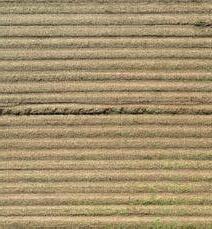
132 g/kg hexazinone + 468 g/kg diuron
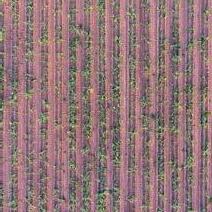
240 g/L picloram

330 g/L paraquat 240 g/L imazapic



g/L fluroxypyr

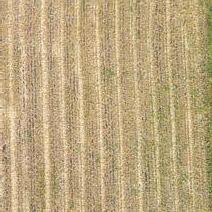

625 g/L 2,4-D amine

750 g/kg metribuzin

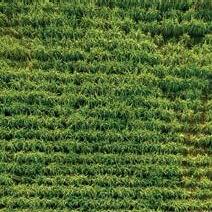

750 g/L MCPA amine 240 g/L bifenthrin 900 g/kg atrazine
750 g/kg hexazinone + 150 g/kg imazapic 400 g/L asulam 625 g/L propiconazole


g/L MSMA












SUPPLIED BY SUGAR RESEARCH AUSTRALIA
In the week commencing 20th May, SRA established that the variety SRA34A was in fact, genetically identical to KQ228A and therefore the same variety.
This creates challenges for some productivity services organisations (PSOs) who now have more KQ228A in their Approved seed pipelines than planned, and results in some growers having on-farm propagations of KQ228A instead of what was supposed to be a new variety.
SRA immediately contacted the directly impacted PSOs and the four growers who ordered SRA34A tissue culture from SRA. We then began working with those directly impacted to understand the implications and to identify appropriate remedial actions.
The DNA fingerprinting procedure was reviewed, and the root cause of this unusual issue was identified. Two changes to the procedure have since been implemented to remove the risk of a similar issue happening again and to prevent a misidentification being perpetuated over time.
Status of SRA34A
SRA34A was approved for release by the NSW Regional Variety Committee (RVC) in 2021 and by the Southern and Burdekin RVCs in 2022. Performance information was included in the Variety Guides showing agronomic performance and productivity were competitive with KQ228A and the disease resistance profile was generally equivalent. The visual similarity of the two varieties has been a subject of significant discussion and is noted in the guides.
Approved seed of SRA34A has been supplied to growers by PSOs in the Condong, Rocky Point, Maryborough
and Bundaberg mill areas. 20,416 tissue culture plants have been delivered or were in the process of delivery to PSOs and individual growers including in the Burdekin. SRA34A has been propagated in Approved seed plots for commercial supply to growers for 2024 planting in Burdekin, Southern region and NSW. The variety is in Final Assessment Trials in the Central and Northern regions and is at an earlier stage of testing in the Herbert.
Cutting the wrong sample from field plots is a recognised risk in plant breeding and Approved seed production, and mix ups also happen on farm. A range of procedures are in place to minimise the risk and to identify when mistakes occur. Highest on the hierarchy of controls is DNA fingerprinting, which has successfully identified mistakes in the breeding pipeline and in Approved seed plots before impacting growers.
In 2023, there were 1,846 samples processed for DNA based variety identification. Some samples are from routine quality control, and many are triggered by concerns about identity, so the results are not an estimate of error rates across the industry. Last year, 10 percent of samples from growers and PSOs were not the expected variety, and 5 percent of samples from SRA identified a mistake in trial plots or propagations. DNA fingerprinting has been used for over 20 years and has proven to be a very useful tool.
Directly impacted PSOs and growers who ordered SRA34A tissue culture from SRA were immediately contacted and advised of the situation. All SRA34A in trials, propagations,
distribution plots and commercial production will have its name changed to KQ228A. This material is valid for ongoing use and SRA is working with those that now have a problematic oversupply of KQ228A
The SRA34A selection history, DNA test history, and the variety identification procedure were reviewed. SRA34A had been tested with DNA fingerprinting on 32 occasions and was never identified as a match to KQ228A. Root cause analysis demonstrated the misidentification came from a unique mistake made in the analysis of the first reference sample by the Australian Genome Research Facility in 2018. The result returned to SRA was that clone QS09 -7888 (subsequently released as SRA34A) had a unique genetic fingerprint when compared to all other varieties and experimental clones in the database.
The experimental clone had been mistakenly replaced prior to 2013 by KQ228A and this test should have identified the mix up. In future, any sample that shows close similarity to an existing variety will trigger manual investigation and a meeting to discuss the results.
A second limitation was identified that allowed the misidentification of SRA34A to continue over time. The first step in the query structure is to determine if the sample matches to the reference for that variety. If there is a match, then the sample is identified, and the query goes no further. In the case of SRA34A the reference was mistakenly a sample of KQ228A. The query structure has been changed to now test the genetic fingerprint of the unknown sample against the entire database. If this had been in place previously, SRA34A would have been identified as KQ228A the second time it was tested rather than masquerading as a new variety for several years.
Two online meetings were held with members of the six Regional Variety Committees in the week of 27th May and a face-to-face meeting of the Southern Regional Variety Committee
was held 12th June. This consultation has supported a collective understanding of the issue, impacts and actions to be taken.
Direct communication with SRA members and publication in the CaneMatters magazine are aimed at providing information to the broader industry. Information is also being prepared to support SRA and PSO staff in explaining the revised DNA fingerprinting process for shed meetings and grower events.
For further queries or more information, please don’t hesitate to contact your local Variety Officer:
SRA Northern Variety Officer, Andrew Rigby at arigby@sugarresearch.com.au
SRA Herbert Variety Officer, Juan Briceno at jbriceno@sugarresearch.com.au
SRA Burdekin Variety Officer, Catherine Kettle at ckettle@sugarresearch.com.au
SRA Central Variety Officer, Christopher Tom at ctom@sugarresearch.com.au
SRA Variety Development Manager Southern, Roy Parfitt at rparfitt@sugarresearch.com.au
SRA New South Wales Variety Officer, Anthony Cattle at acattle@sugarresearch.com.au


sugarresearch.com.au
BY OWEN MENKENS, Chairman, CANEGROWERS

It has been a challenging start to the crushing this year.
We have seen industrial action at the Wilmar and Tully mills following a breakdown in negotiations for a new Enterprise Bargaining Agreement (EBA). This has pushed back the season finish dates for a lot of districts which is a big concern for many growers.
EBA negotiations are not something that CANEGROWERS is normally involved with, but when these discussions break down it is the growers that have to bear the brunt of the costs involved in the longer season.
Therefore, the chairmen of the districts involved and I have been meeting regularly to help work through solutions. We have also been in contact with senior management of the mills and the unions providing them with specific data around the costs to growers that come about when the season is extended or not completed. At this stage there has been no final agreement, and the parties remain in negotiations however the mills are running which is some positive news.
The other major issue heading into the start of the crush has been the position for Mossman mill and more importantly the growers who supply it. After an enormous number of negotiations, the cane from Mossman will be crushed at Mulgrave mill after a three-way deal was struck between the growers, MSF and the Queensland Government. This was achieved by the incredible effort and actions undertaken by CANEGROWERS Mossman board members, CANEGROWERS Mossman district manager
Evelyn Matthews and CANEGROWERS CEO Dan Galligan. They should be congratulated for their effort.
It is still unclear what will happen to the mill going forward but with the leadership of CANEGROWERS Mossman I feel confident about the future. When we choose to represent growers, it is never easy but putting the interests of the growers and industry first is at the forefront of our decisionmaking process.
At the time of writing, I am in transit from the World Association of Cane and Beet Growers (WABCG) conference in Fargo, North Dakota. This conference brings together sugarcane and beet farmers from all over the world to discuss issues affecting our industry. All of the representatives are also farmers and all look to put the interests of their industry forward for the benefit of their growers.
We are facing similar challenges whether that be government or market based. The annual WBACG Conference is a great opportunity to learn about how others around the world deal with these issues, so I can do my job here better. The good news is that it does not look like production is increasing anywhere in the world and given consumption is increasing it does bode well for the price going forward.
I wish all of you the best for the start of the crush.
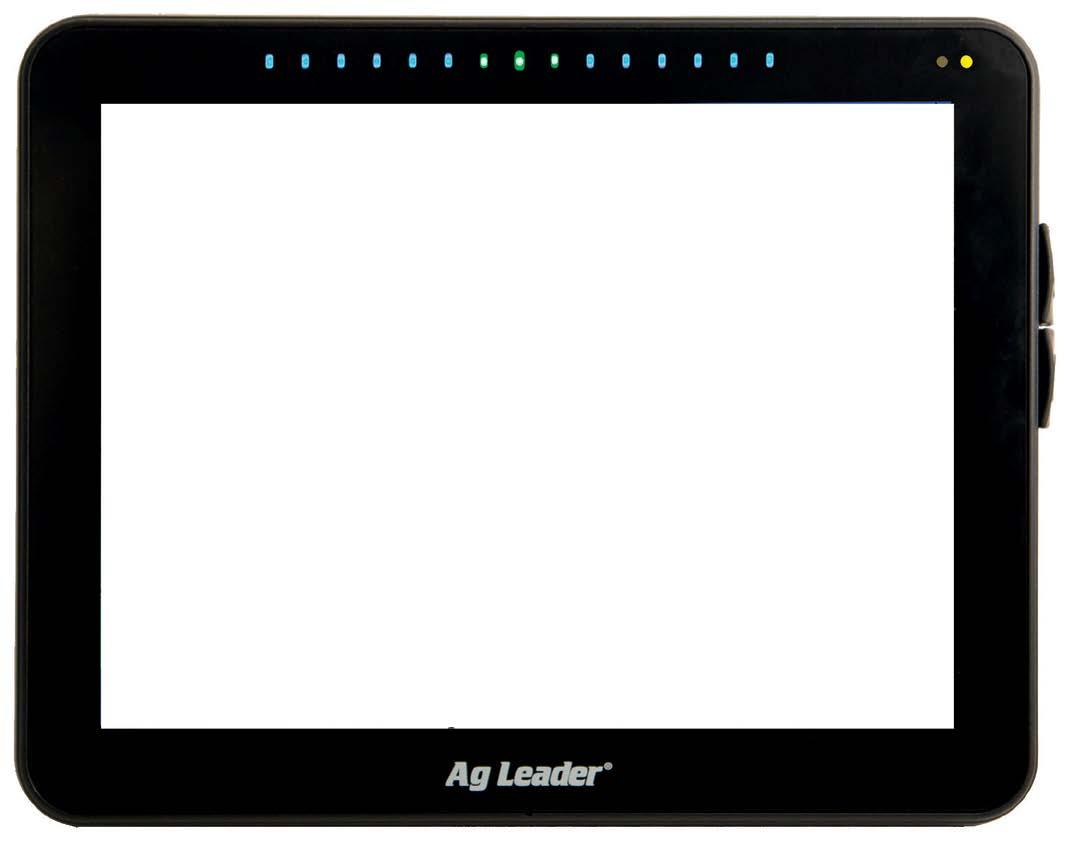

Take your spraying program to the next level of accuracy and performance with RightSpot™ precision technology from Ag Leader. Suitable for retrofitting to most self-propelled or trailed sprayers, RightSpot utilises blended pulse technology to maintain consistent droplet size and coverage at all operating speeds. With independent control of up to 144 nozzles, automatic turn compensation and automatic reticulation, priming and flushing, RightSpot significantly reduces input costs and the potential for spray drift. Contact your local Ag Leader dealer and find out how RightSpot can optimise the efficacy of your spraying program.
Halpin Precision Ag (Bundaberg)

BY PETER ALBERTSON QAWN OFFICER FOR CENTRAL QUEENSLAND
Since COVID, there’s been a major shortage of haulout drivers for harvesting contractors in all the sugarcane growing regions of Queensland.
CANEGROWERS Mackay has been successfully operating a Haulout Training Course for the past 20 years in Central Queensland, and in mid-April the course was replicated for the first time in Tully, as part of a Queensland Agriculture Workforce Network (QAWN) initiative to address this issue and expand the Central Region’s Haulout course.
The training course involves one full day of theory and three days of practical,
hands-on experience operating haulout vehicles under field conditions and the opportunity to receive four units of competency towards a Certificate II in Rural Operations. The course is funded through the Department of Education, Small Business and Training’s (DESBT) Skilling Queenslanders for Work (SQW) Program.
One of the key factors to ensure the success of a haulout course is having highly skilled trainers, a skilled
assessor and industry supporters who are willing to provide the heavy machinery required, in this case three haulouts and one cane harvester. As occurs in Mackay, the trainers are also the individuals willing to supply the heavy machinery.
For the Tully course, Dale Bray, a local harvesting contractor, not only provided all the heavy machinery but was also one of the Junior Trainers.
“I have experienced firsthand the shortage of haulout drivers recently,” Dale said. “It only seems to be getting worse each year.”
He had previously heard of the CANEGROWERS Mackay Haulout Course and was eager for it to be trialed in Tully.
“It may be a way to attract new people into the industry,” he said. “From my experiences when trying to recruit new haulout drivers, they don’t seem to be either truly interested in the role or they’re completely unaware of the high demands and commitment level required.”
Consequently, finding a suitable applicant for the haulout role has been extremely difficult for Dale, and this is a common experience for most harvesting contractors throughout Queensland’s sugarcane growing districts.
One point that Dale raised was that although this labour shortage issue is a significant one for the sugarcane industry, the full impact is only fully felt and understood by the harvesting contractors.
This was also previously identified by QAWN in Central Queensland through phone surveys and discussions with contractors. They detailed the significant family sacrifices made to ensure that their businesses’ harvesting teams were fully staffed.
Many described having to call on family members to return to the farm to fill the labour shortages. This included senior family members who had retired or young adults who had started tertiary education or work elsewhere. In these instances, it can cause significant stress within a small, family-run, harvest contracting business which can have a longlasting, negative impact.
“I have experienced firsthand the shortage of haulout drivers recently”
To address this difficulty experienced when attempting to source haulout drivers, the CANEGROWERS Mackay Haulout Course has three key approaches, an extensive promotion and marketing campaign to maximise the number of Expression of Interests (EOIs) in the course, a strong assessment and selection process to choose the best 10 candidates for the
training and employment placement organisations are not involved in the course or, more importantly, the selection process.
Although everyone is invited to submit an EOI in the course, the selection of trainees is based on individual merit, capability and willingness to fulfil the obligations of a haulout driver.
Within 10 days of promoting the course in late February, CANEGROWERS Tully staff were inundated with 64 EOIs. This high level of interest exceeded expectations and forced an earlier closure to further applications.
Phone interviews of all EOI applicants were conducted by CANEGROWERS Tully as the first stage of the selection process. A review of the collected phone interviews led to the second stage of the selection process where 20 applicants were offered face-to-face interviews.
During the face-to-face interviews, the QAWN Central Officer provided a ‘warts and all’ understanding of what the haulout operator role involves and what is expected of them. This was followed up with a series of set questions for each trainee to respond to and an opportunity for the interviewee to have their own questions answered.


Based on their responses, 10 applicants were offered a traineeship and a further three were placed on a standby list.
“It was provided by the Training and Assessment Team who are also reallife farmers with extensive practical industry expertise”
Leading up to the training course several trainees declined their traineeship and were promptly replaced by those on the standby list. This is a common occurrence when conducting the course in Central Queensland so for the Tully course, a significant number of standby positions were implemented to ensure that the course had a full complement of 10 trainees at its commencement.
The first day of the course was theory work which was conducted in the Tully Mill’s Recreation Hall. Dale was also in attendance and, although the true test of how well an applicant can perform is during the practical training, his overall first impression of the trainee group was cautiously positive and optimistic.
As a Junior Trainer, Dale also provided parts of the practical training component and experienced the skills of all trainees firsthand. Unfortunately, due to his business commitments, he couldn’t provide Junior Trainer duties for the full course, but had one of his senior staff, Ross Hansen, take his place for Days 2 and 3, while on the fourth and final day, both Ross and Dale were in attendance.
As part of completing the four competencies towards a Certificate II in Rural Operations, the trainees’ bookwork had to be marked by Axiom College’s, the course’s Registered Training Organisation (RTO) assessor, Chloe Ottone. Ms Ottone also has over five years’ experience in haulout driving.
Whether a trainee is awarded a pass was determined by all four of the
trainers as well as the assessor. These individual decisions are not taken lightly as it is the trainer’s ‘industry reputation’ that is at stake.
For the Tully Haulout Course all 10 trainees passed and all received the four competencies towards a Certificate II in Rural Operations.
Within two weeks, all trainees had been offered haulout positions with harvesting contractors and 90% have accepted. As eight of the ten trainees had been unemployed prior to the course and all have now secured employment, this is a fantastic outcome not only for those individuals but also for Tully and the local cane industry.
One of those trainees was Nicholas Porter, a 41- year-old, who had moved to Tully from Brisbane in early 2020. He had previously worked in the sheet metal industry as well as paid and voluntary work for the Queensland Fire and Emergency Service. The reasons for Nicholas’s decision to leave Brisbane were numerous, but mainly to be closer to his son and also offered adventure and better fishing.
When Nicholas saw the haulout driver course advertisement in social media, he was extremely interested.
“Seasonal work would allow me to have some freedom in the offseason to do some travelling, fishing and being able to spend the whole summer school holidays with my son,” Nicholas said.
Nicholas Porter (LHS) with his Certificate of Attendance awarded by Bryce Macdonald, Chair of CANEGROWERS Tully Board during the Award Ceremony on the final day of the course

“I liked the course as it was thorough and that it was provided by the Training and Assessment Team who are also real-life farmers with extensive practical industry expertise.”
Within a few days of completing the course, Nicholas had been contacted by a local harvesting contractor in Tully who offered him a haulout role for the 2024 season, which he gratefully accepted. He is now looking forward to his new job as a haulout driver and the work/life balance that the seasonal work will provide.
Another glowing endorsement of the Tully Haulout Course has been the recruitment of three of the ten trainees for the 2024 season by Dale Bray.
As a ‘pilot’, there is always room for improvement, particularly in making slight modifications to better suite the different requirements and processes in Tully compared to Mackay, however these modifications are slight and will be made prior to the 2025 season.
From Dale’s perspective, he foresees a strong industry need to continue the course in Tully into the future. The concept is for CANEGROWERS Tully to submit a project proposal to the SQW Program in late 2024 for them to manage the course in 2025, and hopefully this year’s ‘pilot’ project has provided significant evidence and justification for DESBT to approve it.
The course’s success is strongly correlated to the involvement of key
industry stakeholders who supported the Tully ‘pilot’ haulout course from concept through to fruition. This consisted of the Haulout Training and Assessment Team, Ron Gurnett (Senior Trainer), Dale Bray (Junior Trainer), Peter Zamira (Junior Trainer), Ross Hansen (Junior Trainer) and Chloe Ottone (Assessor for Axiom College) and the QAWN Officers from Central, Peter Albertson, and Far North Queensland, Leanne Kruss. This team was greatly assisted by the Mackay and Tully CANEGROWERS district office staff and the Tully Mill (COFCO).
For further information please feel free to contact Peter Albertson, QAWN Central Officer, peter_albertson@ CANEGROWERS .com.au or 0457 201 927
This Skilling Queenslanders for Work project is proudly funded by the Queensland Government. Skilling Queenslanders for Work funds not-for-profit communitybased organisations to deliver projects that respond to the needs of local job seekers and employment opportunities in their area. The Queensland Agriculture Workforce Network (QAWN) is funded by the department of Agriculture and Fisheries and supports Queensland agribusiness to attract, train and retain workers. QAWN is a free service available to Queensland agribusinesses regardless of commodity or organisational membership. The QAWN Central Officer’s role is hosted by CANEGROWERS Mackay.
The 2024 Tully Haulout course was funded through the Department of Employment Small Business, Employment and Training (DESBT) following a successful project submission by Queensland Agricultural Workforce Networks (QAWN) Central and Far North Qld Officers to the Skilling Queenslanders for Work (SQW) Program.
The course enabled 10 trainees the opportunity to receive four units of competency towards a Certificate II in Rural Operations.
The four competencies are:
AHCWHS201 Participate in Work Health and Safety Processes;
AHCMOM214 Operate a Cane Haulage Vehicle;
AHCMOM202 Operate Tractors and
AHCMOM204 Uptake Operational Maintenance of Machinery.










Your Trusted Partner
Current as at 18 June 2024.
By Elliott Apel, Marketing & Risk Officer
Brazil
India
Thailand
Speculators
By the end of May, 140 million tonnes of cane had been harvested in Centre South Brazil resulting in the production of 7.8 million tonnes of sugar, marking an approximate 11% increase year on year. The surprising factor, however, was the unexpectedly low sugar mix of 48.28% recorded in the second half of May, falling short of market analysts’ expectations of 50%. With the weather remaining extremely dry, standover cane that has been harvested is of poor quality and young cane is being cut before it has fully matured. This situation is raising concerns as weather forecasts show no sign of rain and if the rapid pace of the harvest continues, it will be difficult for cane development to match the speed of operations.
The monsoon arrived in India as expected on 1 June, bringing slightly above-average rainfall to the key cane-growing states of Maharashtra and Karnataka. However, rainfall has not yet made its way to the northern states, which have experienced extremely hot temperatures. At the time of writing, no news had been received regarding export policies for the 2024/25 season, as both the industry and the government are likely waiting to assess the progression of the monsoon.
It has been a varied wet season in Thailand, with some northern regions receiving abundant rainfall, while central areas have missed most of the rain and are experiencing hot and dry conditions. Due to the inconsistent rainfall across the country, crop forecasts remain uncertain, with expectations ranging between 95-110 million tonnes of cane to be harvested in the upcoming season
After building to an 81,750-lot net short position by early June, speculators trimmed their position to 71,650 lots net short as of 11 June. The news of Brazilian weather risks and a lower sugar mix were likely the drivers behind some of the speculative community beginning to buy back their positions.
The AUD finally managed to gather the strength to break free of its 65-66 US cent range in June, trading to highs of 67.01 US cents. The US Federal Open Market Committee (FOMC) remained convinced the cash rate was at its terminal level and that it was only a matter of time before it can begin its rate-cutting cycle which could deliver up to two rate cuts in late 2024. The Reserve Bank of Australia (RBA), on the other hand, is less convinced of the possibility of delivering rate cuts this year, given that the Australian monthly CPI indicator showed inflation increasing from 3.4% to 3.6% between February and April 2024.
The outlook ratings above are in relation to AUD/tonne sugar prices. A bullish outlook is considered positive. A bearish outlook is considered negative.
The highest grower-managed pricing levels achieved across all growing regions using QSL products to date (all gross price actual/tonne) are:
• 2024 Target Price = $840 / IFC $870 (Jul24)
• 2025 Target Price = $735 / IFC $735 (Oct25)
• 2026 Target Price = $685 / IFC $690 (Jul26)
• 2027 Target Price = $650
• 2028 Target Price = $550
Key Dates:
• 20 September | Any 2024-Season Target Price Contract tonnage not priced by this date will automatically have its pricing window extended and roll costs may apply.
• 20 September | Any unpriced tonnage allocated to the October 2024 contract through the Individual Futures Contract and Self-Managed Harvest Contract that is not rolled by this date will be priced by QSL at the next market opportunity.
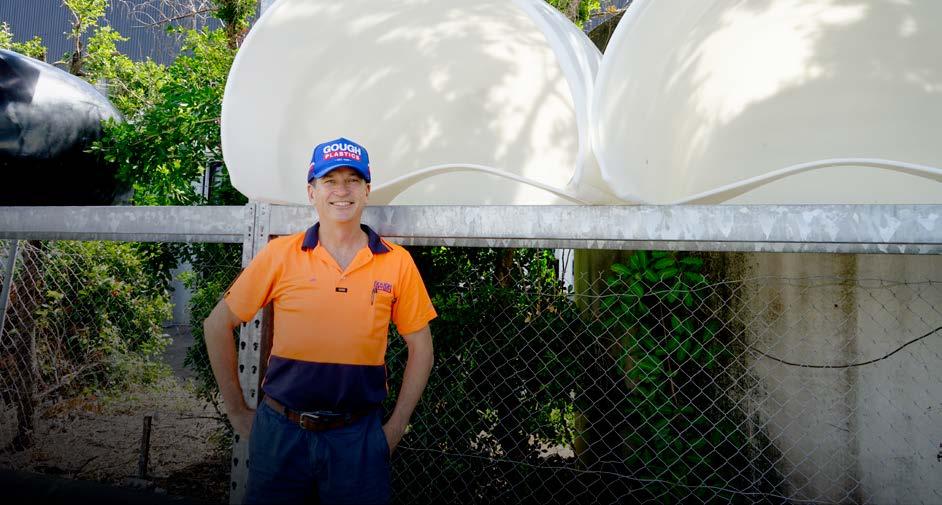
The Gough family have been allied with the sugarcane industry for over 100 years.
Originally growers and Innovators from Ingham the family-run Gough Plastics was initially established from an innovative solution to an industry challenge.
As canoeing and outdoor enthusiasts, the Gough family had been making canoes out of their farm shed in Lannercost from corrugated iron, then out of fibreglass, to tackle the mighty Herbert River rapids. Then they experienced moulding canoes in plastic and the rest they say is history. They had an Industry they knew suited their creative souls, but they couldn’t make canoes because their friends were, so what to make?
Knowing from friends in the Cane Harvesting industry, especially the Kirks and the Crisafullis that the steel harvester extractor hoods were heavy and costly to repair each year, they moved their innovative minds to this challenge and they designed and moulded their first plastic extractor hood, and it took off. They actually made their first oven themselves, but if anyone knows Peter Gough and his sons, Andrew, Simon and Ian, they wouldn’t be surprised.
Gough Plastics is now based in Townsville and is a Research, Design and Manufacturing company that specialises in new products from conception through to point of sale. Their expertise as Rotational Moulders has seen them supplying products around the world.
“We have a huge range of products that we sell all around the world, but yes, our very first product was a cane harvester extractor hood,” Ian Gough Director of Gough Plastics said.
“We have always been sugarcane focused, starting our business in 1989, moving from the backyard shed, to rented sheds, then our own shed in 1995 and were now in the process of building a brand new factory beside the Port Access Rd in Townsville that’s part of the new Queensland Government State Development site, we are doing this with assistance from a Federal Government NADP Grant, which is greatly appreciated”.
“We’re the only Australian manufacturer of sugarcane harvester hoods, everything’s designed in-house, and we’ve got an Australian industrial designer that was educated here in Queensland.
“The materials we use, have been sourced from our research, where we literally searched the planet to find the best plastic to use. It’s our unique blend of materials that we put together, and it’s long-lasting, and most times they get the harvesting contractors through the season – we talk with other moulders in Australasia, and they can’t believe the punishment the Hoods & Liners get.
“We now make almost everything that’s needed on farm, whether it’s a Water Tank, Chemical tank, Molasses Tank and now on farm Diesel Tanks, Stationary in 12 and 240V and Cartage tanks as well.”
“We can also custom make things too, so if a farmer needs something made that is specific to their needs, their business or farm, all they need to do is give us a call as we can hand-fabricate one-off items. So just pick up the phone, or text, or get a hold of us via Linkedin or our socials –I know we will be able help.”
BY RENEE CLUFF
Tully has commemorated 100 years since the Far North Queensland town was built on the sugar industry.
Thousands of people turned out to multiple events in Tully last month, to celebrate 100 years of the sugar town’s history.
The Tully Sugar Works Area began being built in 1924. A school and township homes were among the first buildings to be erected, after a parcel of land was set aside for what was then known as the Tully River Sugar Mill.
“When the mill started to be built, the town was built around it,”
CANEGROWERS Tully Chairman Bryce Macdonald reflected. “Back then, the Tully area was known as Banyan after Banyan Creek. The main town was originally surveyed at Rockingham, just to the south. Those plans were abandoned when the mill was built in the current location.”
Tully was officially gazetted as a town in 1925. Like the mill, it received its title from the Tully River, which had been named after Surveyor General William Alcock Tully. 1925 also heralded the town’s first sugar crush.
Special events to mark Tully’s beginnings and the 100 years since have included cemetery tours, a canecutters smoko, art and photograph exhibitions, an oral history project and a fashion parade showcasing a century of style trends. Also among the highlights were a soldout dinner dance and a street parade, which included a CANEGROWERS Tully and Mitre 10 (co-op) float.
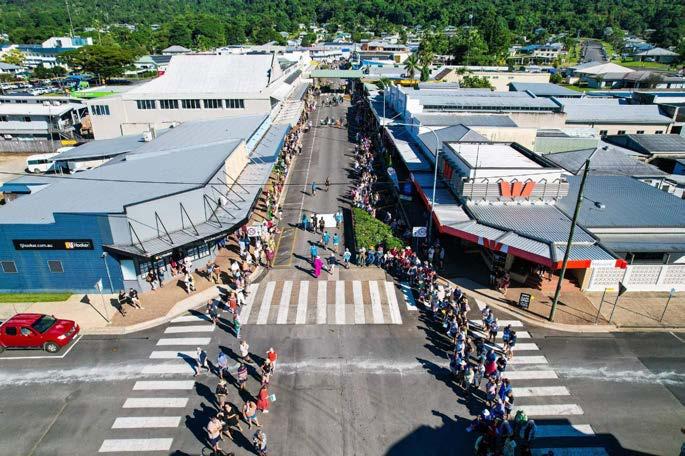

“There was a fear factor that there would be more people in the parade than cheering them on in the streets but in true Tully form, the streets were lined from the Golden Gumboot to the school,” Bryce quipped.
“It was a town reunion”
“All the ticketed events were sold out well ahead of time. The celebrations were really well supported and everyone who was involved in organising the events and volunteering their time did a wonderful job.”
The celebrations will continue next year, when Tully Sugar Limited and industry partners, including CANEGROWERS Tully, officially mark the centenary of the first sugar crush. ‘Sugar Week’ will be held next May.


BY RENEE CLUFF
A Tablelands farm succession plan is ensuring the operation remains in steady hands for the next generation.
Thomas, Jess and David Howe are passionate about agriculture. “Farming is in our blood,” eldest brother Tom explained. “It’s a good lifestyle and we enjoy the work, which is challenging and varied.”
The siblings’ futures as fourth generation farmers are secure thanks to a complex but clear succession plan created by their parents.
Peter and Chelley Howe operate Rock Ridge Farming in the Tableland district, where they grow sugarcane alongside bananas and avocados.
Their children, who are all aged in their 20s, are Operations Managers in the business.

They each returned to the farm after completing tertiary education. Tom gained certification as an autoelectrician, Jess obtained a business degree and David completed an apprenticeship as a diesel fitter.
Father Peter said his children are an integral part of the operation, particularly as it continues to grow and evolve. “Going forward, Thomas, Jess and David will be vital in the operation of Rock Ridge Farming,” he said.
“The coming years will present challenges that this generation of farmers will be best equipped to take advantage of.”
Developing a fair and equitable succession plan is an intricate and ongoing endeavour, which Peter said is aided by the business structure he and Chelley established.
“We’ve got multiple farms and they’re all owned under different company names, so it’s possible for each child to get his or her own company,” he explained.
“We did that on purpose. When we buy a new property, the name of the company that property is purchased by directly relates to the child that’s probably going to end up with that property. In our wills, the children will get equal parcels of property.
“There are some properties that they will have to share, such as our packing shed, so they will still need to work together and sort out any differences.


“There are also the monetary values and the water allocations we can use to even up the three parcels. We’re trying to keep everything fair.
“We talk to the kids, and they know what properties they’re probably going to be getting.
“But it’s always changing.”
“It has to be flexible because the business is growing"
It’s a transparent approach which his children recognise as being beneficially straightforward and unequivocal. “Us kids really appreciate that Mum and Dad have made everything so clearcut,” David said.
“Ultimately, the stress of splitting up the farms is the last thing we want to be worrying about if the worst happens,” added Jess.
Peter said his own experience as a third-generation farmer was very different. His story goes back a century, when his grandfather migrated to Far North Queensland from Italy and began cutting sugarcane at Pine Creek, south-east of Cairns, before buying his own farm.
Peter’s grandmother and his mother, who was born in Italy, joined his grandfather in Australia in 1929.
As an adult, his mother travelled to Sydney, where she met Peter’s father and married.
“Mum and Dad heard all the stories about the money you could make farming up here (in Far North Queensland), so they planned to come up only for a few years to make their fortune and move back down to Sydney, but Mum was still here 80 years later,” he joked.

Peter’s parents had eight children and together they grew a mixture of crops, including tobacco, watermelon and pumpkins. When his father died in his late 60s, the children and their mother kept the operation going.
“We did it tough for years,” Peter recalls. “It was only due to Mum’s stubbornness that the banks didn’t sell us up. She was a force to be reckoned with, that’s for sure.
“Mum also worked hard in the field, while cooking for all the men. It didn’t do her much harm; she only died a couple of years ago aged almost 99. She was fit. I think all the girls worked harder than us out in the field and then also had to work when they came back to the house.”
The property Peter’s parents purchased at Walkamin remains in the family today, operated by Howe Farming, which is owned by some of Peter’s siblings.
“With such a large family, that’s where you learnt the importance of succession planning,” Peter explained.
In 2011, he and his wife Chelley went out on their own and started Rock Ridge Farming, which today employs around 200 people and includes a state-of-the-art packing shed at Tolga.
Their farms encompass about 800 hectares and are spread across all corners of the Tablelands at Dimbulah, Mareeba, Tolga, Kairi and Yungaburra.
“We’ve put in some hard yards and hopefully it pays off,” Peter said.
It’s a legacy his children are sure to build upon as the years progress.


Peter has a love for vintage machinery. This one is among many housed in his packing shed Thomas Howe
L-R Chelley, David, Peter, Thomas and Jess Howe

Omnia’s devotion to improving fertilizer efficiency through increasing root development is commendable. Illustrating their impressive results on several different crops, including sugar cane.
Sugar cane root analysis was performed through the SARDi Root DNA analysis at three different sites all at different growth stages. The results returned with a 51% increase in root DNA in the treated plots verses non treated. The culprits of this increased root development are Bacstim 100 and Rhizovator OB.
Bacstim® 100, containing 5 strains of beneficial bacteria, enhances nutrient absorption by colonizing the soil immediately surrounding the root tip and rendering nutrients within the vicinity more available to the plant. Rhizovator™ OB complements this by stimulating root growth whilst retaining nutrients within the rootzone for longer periods of time.
Combined, these products significantly boost root development and ultimately crop productivity. This improved productivity is highlighted by the two-year trial conducted in Innisfail, Queensland, where treated plots recorded a 27% increase in sugar production over the control. Providing a significant increase in monetary returns.
To maximise fertilizer efficiency without any loss in productivity is the ultimate goal of any farming enterprise. And this holds especially true for the Australian Sugar Cane Farmer. At a time where inputs are high and increased environmental pressures are governing the use of fertilizer, there is no better time to start looking at alternative methods to remain not only productive but also profitable.
“To maximise fertilizer efficiency without any loss in productivity is the ultimate goal of any farming enterprise”.
Harnessing the power of biostimulants continues to produce outstanding trial results in Sugarcane.
• 3 different sites analysed in Oct 2022
• 3 different growth stages: - 3 months post planting
- 7 months post planting - 8 months post planting

• Average increase in root DNA over control was 51% to find your nearest Omnia Agronomist
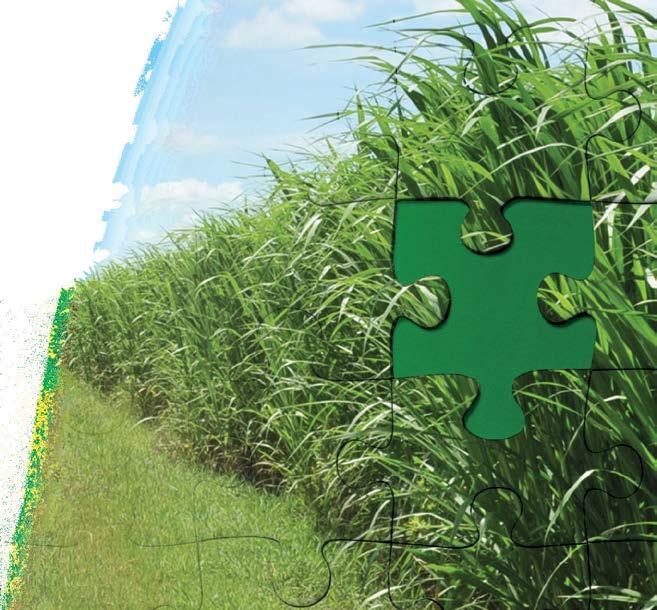

Venturing into the field offered a unique chance to dismantle misconceptions surrounding the growth of sugarcane in Queensland for a cohort of students from the University of Texas at Austin.
Last month 24 students visited third-generation grower Steve Pilla at his farm in Giru in the Burdekin and gained immensely from seeing first-hand how innovation, technology and the industry’s best management practice program, Smartcane BMP, are all integral components of his farm management systems.
Many of the students were impressed by how effective self-regulation has allowed farmers to orchestrate their sustainability and by the use of technology to automate irrigation
The automatic pumps and sensors were notable to the students, and they were amazed to realise that on Steve’s farm, almost every segment of irrigation is fully online which assists him to streamline his approach to water use, saving time and money.
Rhonda Evans, Associate Professor of Instruction in the Department of Government and Director of the Edward A. Clark Centre for Australian and New Zealand Studies, designed the course on the Politics of Protecting the Great Barrier Reef, which just finished its third year. The class study the different ways in which human activities impact the Reef.
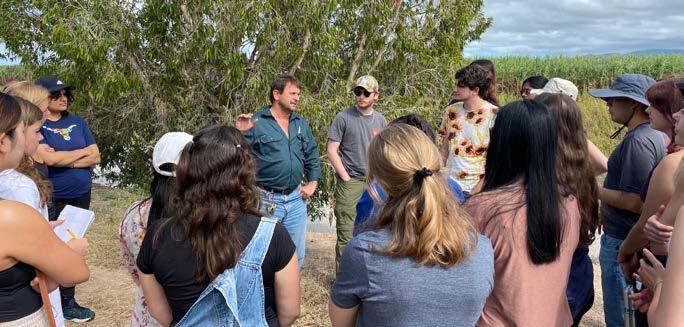
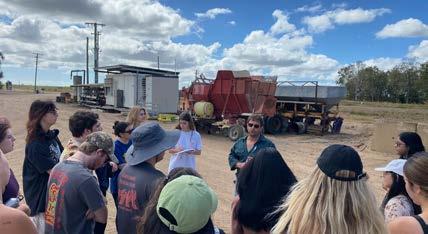

“Most students,” Dr. Evans observed, “have spent little or no time on a working farm, so they come in with a lot of misconceptions about farming and farmers. Learning about sugarcane farming on-site and talking with Steve about his work transforms student mindsets and allows them to think about regulation from more practical perspectives.”
“And, honestly, my visits to farms over the past two years have affected my own thinking in similar ways. The opportunity to see cane farming firsthand has become an integral part of the curriculum and a real highlight for the students. I’m very grateful to CANEGROWERS for facilitating these visits.”
The students’ interaction with CANEGROWERS continued in
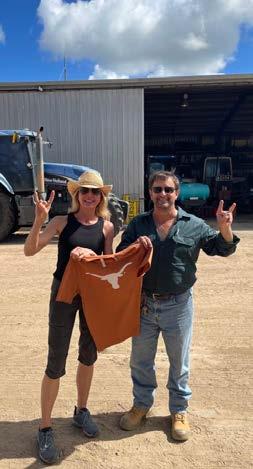
Brisbane with discussions from CANEGROWERS policy team members, Burn Ashburner, Chris Gillitt and Matt Kealley on advocacy, farming practices and sustainability.
CANEGROWERS Senior Manager
Membership and Engagement
Matt Kealley said these types of invaluable engagements with international students can help in breaking down any stereotyping of the Queensland sugarcane industry.
“The chance to get students out in the field and talk with growers and industry representatives ensures a greater knowledge of the industry,” Mr Kealley said.
“It also helps the students to better understand the growers’ strong stewardship of the land on which they farm.”
BY KATE REARDON

A key reason for some growers to be hesitant in Smartcane BMP is the several myths around keeping records. Keeping records for your farming business isn’t just for Smartcane BMP accreditation—for example, it’s a regulatory requirement under Chemical Usage (Agricultural and Veterinary) Control Regulation, Workplace Health and Safety, and Industrial Relations legislation.
Good records form the foundation of understanding your business outputs, helping you monitor trends and changes over time. While the task may seem burdensome, a distraction from the ‘real’ work, maintaining records doesn’t have to be complicated. And it can be done in a way that suits you – on paper, a map, in a spreadsheet, or on your phone.
Whichever method you choose, ultimately it needs to work for you. Elements to consider are fit for purpose, ease of use and availability. There is no value in implementing an option if it only meets a small range of your needs. Start by determining what data you need and what you want to achieve with your records. Consider its complexity, if it’s too complex or requires frequent retraining, it’s less likely to be used consistently. Finally, is it readily accessible, whether in the field or the office and either online or offline.
Options range from simple methods like using record keeping books, to advanced farm management programs with Geographic Information System (GIS) capabilities, each with a variety of strengths and weaknesses. Traditional paper records are accessible and straightforward to use, however they can be easily lost or
damaged. Digital spreadsheets offer versatility and can be adapted to suit your needs with built-in functions to automate calculations and generate visual charts for better insight.
However, accessibility in the field and offline can present a different set of challenges. There are numerous agriculture-specific apps designed for field record-keeping. These apps often offer features like GPS mapping and real-time data entry. However, they’re not always user friendly and can take time to learn.
Comprehensive farm management software provides an all-in-one solution for data recording and analysis. However, they can be expensive and lacking in customer support services when issues arise.
By choosing a method that best suits your preferences and farm conditions, you can ensure that your field records are accurate, practical and easy to use.
During a Smartcane BMP audit, a grower is required to provide a sample of their field records as evidence of meeting requirements for Smartcane BMP, such as using the SIX EASY STEPS program. A random selection of field records for irrigation, chemical
application and nutrient management are reviewed by the auditor. Field records can be in any format, so long as they contain all the details needed and the auditor can establish they are compliant with best practice.
Any records reviewed during an audit remain with the grower with no hard copies kept by the audit or stored within the Smartcane BMP database.
Setting up your record-keeping system might be the hardest part, but once established, it will support you in making solid business decisions and a successful Smartcane BMP accreditation audit. So, be smart about your record keeping, make it a seamless part of your cane farming operation and get in touch today with your Smartcane BMP Facilitator about working towards your accreditation.
CANEGROWERS delivers the Smartcane BMP project (20222026) with funding from the Queensland Government's Reef Water Quality Program and CANEGROWERS
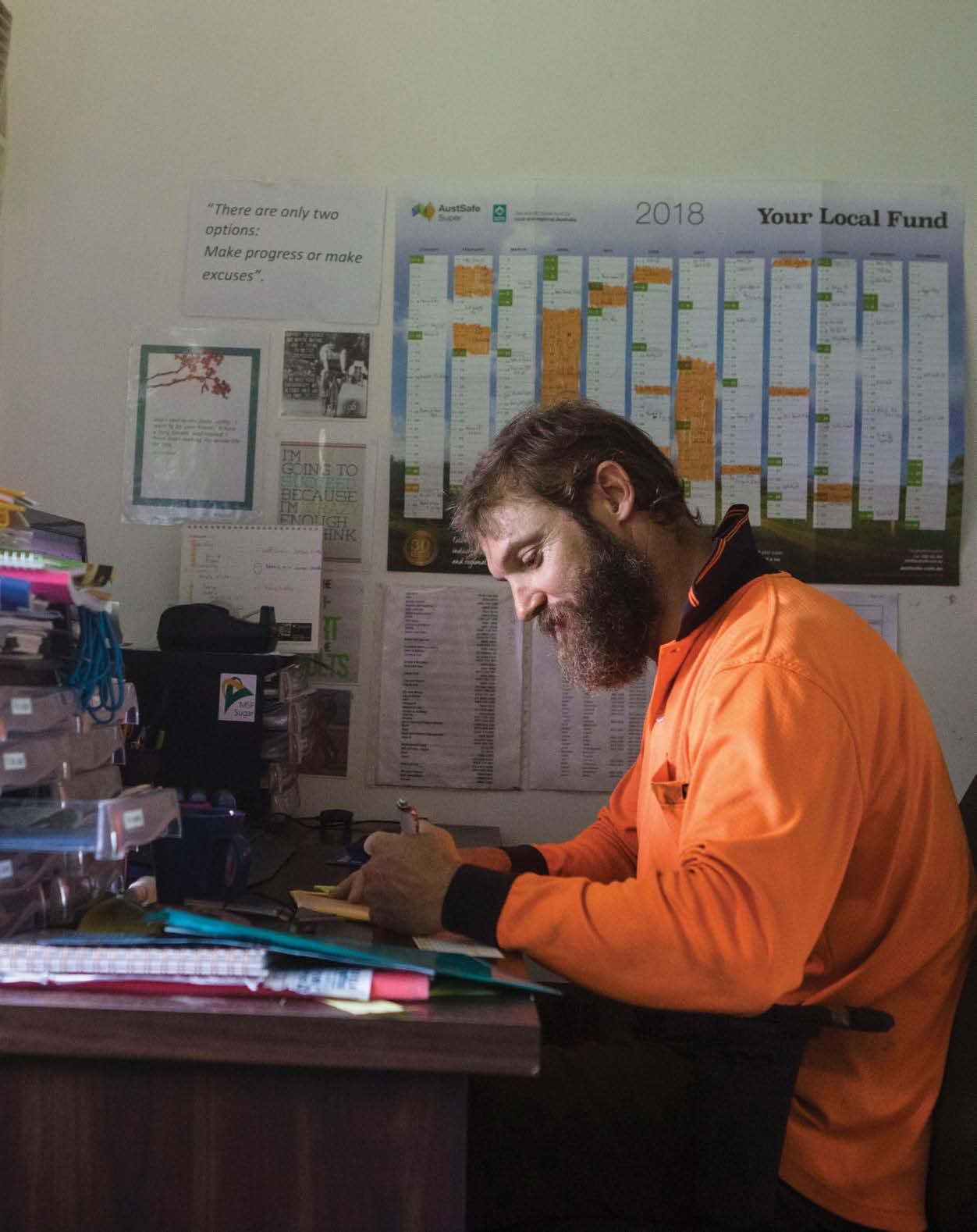
You know your farm and what you want to achieve.
Smartcane BMP recognises how you farm and supports improvements you want to make.
Talk with your district facilitator about how they can help you.
It took until the last few days of May, but the monthly rainfall managed to exceed the monthly average yet again; albeit by only 5mm.
The growing conditions for the crop improved greatly during May and June, with the cooler nights and less humid days setting off wide-spread flowering of the cane across all districts.
Even after the Cyclone and flood event in late 2023, the crop is still upright and looks perfect for harvest. Our biggest concerns will be the unknown debris that could still be sitting in paddocks and may hamper the harvest to some extent.
We finally managed to get confirmation that Julatten cane will be transported to the Tableland Mill and those growers have been offered a three-year rolling contract. Meanwhile coastal growers were preparing to deliver as much of their crop as they could to Mulgrave mill.

Due to delays in securing some assistance, coastal growers were slated to start deliveries to Mulgrave mill about three weeks after Mulgrave growers started their crushing. This would put first deliveries in early July.
On 7 June the second meeting of the Mossman Region Transition Program Stakeholder Advisory Committee was held in Mossman clashing with a Public Meeting held by the Hon Bob Katter MP around securing Mossman Mill and making the factory operational again. Quite a few members of the public and industry were in attendance and a number of views were expressed by those present.
On 10 June grower representatives attended a meeting at Mulgrave with mill staff and representatives and transport representatives to work through a dry run of the supply chain for coastal cane from harvest to transport to receival at the mill, to processing to payment.
There were a number of issues raised from different perspectives which were discussed and worked through. It was a very beneficial session for all involved.
On 12 June a second Delegation went to Brisbane to meet with the Minister for Agriculture and the Minister for State Development and Infrastructure and the Premier.
It was a full day and representatives of growers, the Douglas Shire Council and the Douglas Chamber of Commerce put forward their best case for continued support for the agricultural industry in the Shire due to its importance to the diversity of the Shire and the economy of the region.
The board representatives had attended a brief update
session with the Liquidator for the Daintree Bio Precinct companies on 18 June.
Growers had an update meeting on 19 June where they heard the latest from government, MSF, and the transport contractor representatives and received an update from board members regarding what is happening with FNM assets.
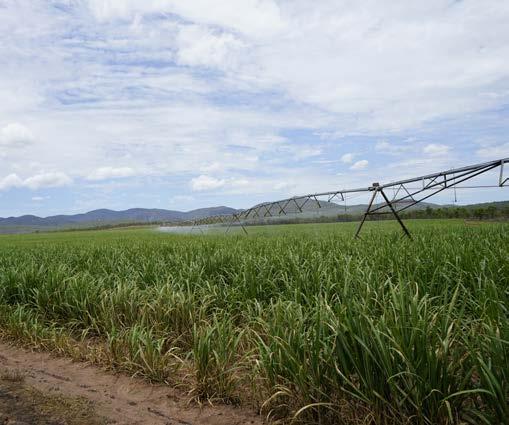
The mill started crushing on 24 May.
Due to the Mossman mill closure, the sugarcane from Julatten will now be crushed at the Tableland Mill. This has raised the total estimate for the district to 895,000 tonnes, adding another week to the season length, estimated finish date 7 December.
The water auction conducted by RuralCo on behalf of Sunwater, running from 29 April to 15
May, has concluded with only 5898 ML out of 11,500 ML of water allocation being sold. 5067 ML of the 10,677 ML Zone “D” water sold for an average price of $3,255/Ml.
The total amount of 831 ML which was available in the East Barron Zone has sold for $4,132/ML. Sunwater has confirmed that it will consider its options, however at this stage there are no plans for further sales or auctions.
Cooler weather and sunny days have finally graced the Cairns Region and growers are in full swing working ground whilst the opportunity is there.
Both the Mulgrave and South Johnstone Cane Supply Contract negotiations are now completed. Thank you to the negotiators who represented CANEGROWERS Cairns Region members throughout this process.
The value of the contracts has been maintained with some key improvements including changes to the planting allowance and moving to a rolling contract from a 3-year contract to allow growers the ongoing option to forward price.
Clauses within the contract have been improved to protect growers’ rights within the rolling contract by addition of a 3-year review and dispute resolution clause.
The final GBRF Mulgrave Russell Water Quality Program Forum was recently held. The Forum included site visits to one of the TropWATER Controlled drainage sites and a soil pit hosted by Farmacist prior to project presentations and lunch.
The Mulgrave Russell Water Quality Program funded under the Great Barrier Reef Foundation has now finished. The TropWATER water quality monitoring and first flush retention part of the project is continuing for another 12 months allowing the project to collect additional data from the project sites.
Both the Mulgrave and South Johnstone Mills were scheduled to start crushing on 18 June.
The recent Business Essentials workshop held in the Mulgrave office was well attended by growers who found the two days very informative and well worth the time.
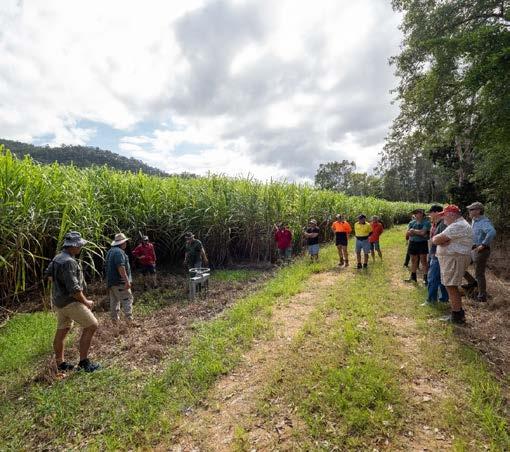

Over 80 members and invited guests attended the CANEGROWERS Innisfail Annual General Meeting on 30 May, pictured.
The Organisation’s showcase event was a great opportunity for growers to connect over a meal and to hear the latest industry and organisation updates. Guest Speaker, Bernard Shroeder gave an insightful presentation on the role of research in ensuring the Australian Sugar Industry remains competitive on the global stage.
The group also welcomed an update from CANEGROWERS Chair Owen Menkens who spoke broadly about advocacy efforts, partnerships, Smartcane BMP opportunities and workforce and education initiatives. The CANEGROWERS Innisfail Board, Management and Staff would like to thank all those that came along and ensured the evening’s success.
CANEGROWERS Innisfail members are currently signing
the new iteration of the Collective Supply Agreement (CSA). Key advances in this contract include an increase in the planting allowance, a rolling term conducive to forward pricing opportunities and grower choice with regards to productivity service provider investment.
CANEGROWERS negotiating representatives are to be acknowledged for their commitment to this arduous task and congratulated for upholding and increasing the value of the CSA.
The Cassowary Coast Reef Smart Farming team once again held their highly coveted shed meetings. The meetings are considered the “go-to” event for growers across the Innisfail region with the latest in locally relevant productivity and water quality data being shared by skilled practitioners.
The South Johnstone Mill commenced crushing under ideal (cool and dry) weather conditions on the scheduled date of 18 June.
Finally, there has been a lengthy period of days with fine weather.
June has provided more days of no recorded rain than the months from January to May. The continuous rain has been tormenting the north for months.
Reports of bird and rat damage are frequent across the districts. For the growers that also had time to get around to all your farm, now is the time to check cane fields near tree lines and drains. Feral pigs are still a problem, as the cane matures, pigs move into the paddocks and won’t move unless threatened.
Planting contractors will be under pressure this year, as the window of opportunity gets smaller by the day. Generally, the month of June allows for some planting to be done across the district, particularly the southern end of the cane growing area.
From the second week of June, there has been opportunity to plant. As it is with harvesting, there is a general shortage of contract planters across the tropical north, due to the expense of equipment and availability of short-term workers.
After a long spell of rain, the district is finally experiencing some respite.
As a result, preparations for planting are in full swing for the district, and some growers have already started the planting process.
Lime and Dolomite blends are becoming increasingly popular, as the benefits are starting to be more recognisable. The popularity of the products is leading to delays in delivery and spreading, particularly because of the extended wet. Generally, there would have been more lime applied earlier in the year, even though planting doesn’t start until May.
Tully Mill started on 17 June, with a below average crop expected for 2024. Original estimates shifted from 2,440,000 tonnes to 2,340,000 tonnes.
Crop ripening is less popular this year as the crop yield is reduced and masses of flowering indicates that the crop has matured early. Some varieties are indicating early sucker growth. Crop ripening products may be used to control unwanted suckers.
I would like to take this opportunity to remind readers of the importance of cane train awareness on roads and paddocks. Also the “Look up and Live” motto and the importance of safety during the harvest.
We have submitted a letter and a comprehensive statement to both parties, urging them to reach a compromise as soon as possible to prevent any disruptions to the season. Due to industrial action and the mills not being ready, the start date for the crushing season has been postponed twice. At the time of writing, the mills are scheduled to begin crushing on 24 June.
In other news, CANEGROWERS Herbert River recently hosted a meeting with the district's young growers, leading to the establishment of the
With a somewhat troubled start to the season, three mills commenced crushing almost a week ahead of the last mill to start.
Delays due to workforce and contractor availability along with industrial action adding to those problems.
All four mills are now crushing, some performing better with daily loadings increasing. However, problems within the factories are still causing some issues and one mill having reduced loadings from what we understand to be staffing problems, lack of Loco drivers.
CANEGROWERS Herbert River Young Growers Branch. We are pleased to announce that Ray Cervellin was elected Chair and Rebekah Pace was elected Secretary.
During the meeting, the young growers received updates from the CANEGROWERS Herbert River executive and directors and discussed plans for the next young growers’ development group trip. Congratulations to the new branch, and we look forward to seeing the contributions and initiatives from our young growers.
However, the ongoing dispute between Wilmar mills and the unions has been a significant cause of concern. The CANEGROWERS Herbert River members are anxious about the impact this could have on the crushing season.
This is a worrying issue with the threat of industrial action likely to hang over our heads throughout the season.
With contractors exiting the industry last year, some growers were still facing the issue of securing a new harvest group to harvest their crop for this season.
CANEGROWERS Burdekin (CBL) has been helping however we can to resolve this problem, including assisting with siding access issues.
We have noticed over the years that more contractors are leaving the industry due retention of staff issues in the field (due to long waits) or late delivery of allotments and with possible industrial action looming the problem is not going to disappear.
Added to this is the visible presence of the National Heavy Vehicle Regulator (NHVR) in the district, growers and contractors were reminded to be conscious of the loading of bins and any loose material on their haulouts that may draw the attention of the compliance officers. Bin mesh size is still proving to be a contributing factor to this problem.
CBL had a meeting with Regional Development, Manufacturing and Water (RDMW) to gain
a better understanding of meter validation in the Burdekin Ground Water management area.
Land holders with bore water entitlements will need to have their Meter Validation Certificate (MVC) by 30 November by Certified Meter Installer (CMI).
Considering the limited access to CMI in the area it was recommended that entitlement holders register with a CMI as soon as possible to ensure they are on record. Other areas have still not completed their MVC due to backlogs.
The crop estimate remained at 1.7 million tonnes for a targeted 24 June start.
It was encouraging to hear of good cane quality results in neighbouring regions that had already started crushing with interim CCS being set at 14.18 for the Proserpine Collective.
With the recent cold spell and widespread flowering, cane was maturing well which would hopefully improve cane quality for those areas harvesting early.
Industrial action at Proserpine Mill continued through the start of June with some respite coming in withdrawal of notices of action by both Wilmar and the Unions (at the time of writing). With mill preparations already impacted, the planned earlier start had been delayed by two weeks.
As further action remains possible, it is hoped further impacts on mill operations would be limited. The persisting
The NBN has teamed up with the Regional Tech Hub and asked for our assistance in meeting with growers to complete a free independent Connectivity Report.
As growers adopt more technology in the running of their on farm operation, the lack of connectivity has shown to be a limiting factor in the operational efficiency in these investments.
This type of consultation can only, hopefully, lead to less dead zones throughout the area.
Young Farmers hosted several ‘more experienced’ growers and various re-sellers at their Pre-season BBQ on 17 June (pictured).
This formed part of the Integrated Engagement and Capacity Building Project through the Queensland Government’s Reef Water Quality Program. An event where growers could share knowledge through peer-to-peer discussions. It is anticipated this event could be repeated in future with good feedback from those attending.
As the Show Cane 2024 week begins, all growers young and old are encouraged to participate with the best cane they can put up. Supported with over $13,000 in sponsored prizes, it is one of the biggest events on the CANEGROWERS Proserpine calendar.
From introducing a Young Farmer Trophy last year to a new Kids Cane entry this year, the event will hopefully be another success that continues to increase in support and interest from the Proserpine community.
“La Nina Watch” continued to increase the potential for late season rains while ensuing colder and drier conditions across the region improved the support for a late June start.
CANEGROWERS continued to intervene as deemed necessary with grower ‘Impact Statements’ submitted to all parties involved. It cannot be overstated how large an impact that a late start or disruptive milling season can have on growers with potential economic losses communicated.
CANEGROWERS Proserpine Board members attended a mill tour at the start of June. This included a meeting with mill management and team supervisors from Wilmar Sugar. While there was still significant work to be done, it was encouraging to see some of the upgrades made at the mill. To benefit from continued good pricing, it is hoped 2024 can prove a successful season for all.
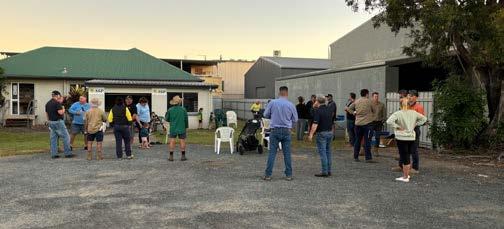
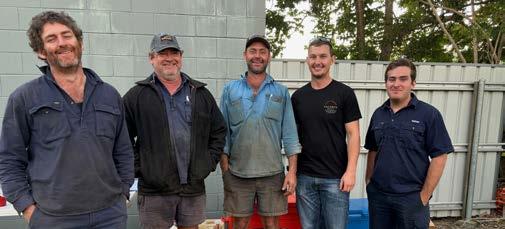
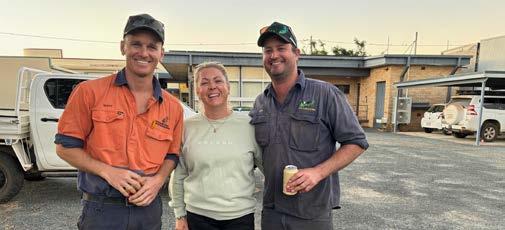
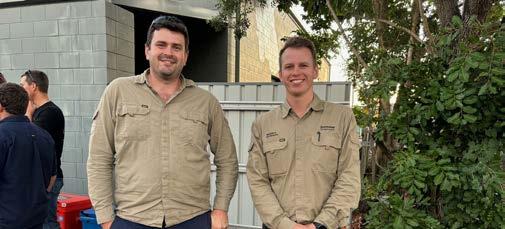
The region’s growers have grappled with a delayed start well into June at Mackay Sugar’s Marian Mill and Wilmar’s Plane Creek Mill.
It has been a matter of incomplete shutdown season works at the former, and the well documented industrial dispute for the latter.
Our thoughts and concern lay with growers affected and it is to be hoped that the millers will have a good season in terms of mill performance to counteract that delayed start.
Chairman Kevin Borg led a delegation to present to Mackay Regional Council on 12 June, with Deputy Chairman Joseph Borg, District Manager Michelle Martin, and Communications and Membership Development Manager Kirili Lamb also attending.
In the presentation, an industry update was provided, with opportunities and challenges for the canegrowing sector outlined including the importance of maintaining land
under cane given the emerging bio-commodities sector and the regional economic development opportunity it offers.
Mr Borg affirmed the importance of government policy- including local government rating structures in supporting the development of a cane-based renewables and biocommodities sector for Mackay.
On 31 May Plane Creek Productivity Services held its annual Productivity Awards, of which CANEGROWERS Mackay is a sponsor, we congratulate all growers who saw success on the well-attended evening at Koumala Community Hall, and to PCPSL staff for organising an excellent evening. Particular thanks to members of Koumala State School P&C for the beautiful catering and hall decoration.
CANEGROWERS Mackay sponsors the Canegrowing Excellence Award, which acknowledges growers who produce the highest Tonnes of Sugar/Ha (TSH) above their zone average. Congratulations to Fred, Janelle and Ryan Axiak,
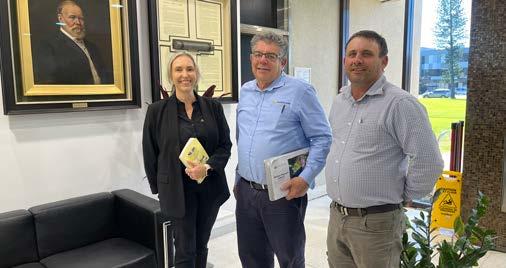
who performed at 31% above their zone average at 15.72 TSH.
Jake Galea won the CANEGROWERS Mackay Next Generation Award, which commends outstanding young farmers. Jake, who farms just to the north of Sarina (Plane Creek) will be featured in the July Billet, alongside his family’s farming enterprise in which Jake is succeeding and developing.
Winter in Mackay means show season, with Pioneer Valley
Show leading off on 16 June and Mackay Show following over 18-20 June. Sarina will follow at the start of August. As ever, CANEGROWERS is sponsoring and championing show cane sections.
Any growers requiring assistance with any issues are encouraged to call 4944 2600 to get the ball rolling on a solution. Keep an eye on our Facebook page, The Billet and weekly District Manager Updates for emerging training and industry opportunities.

Bundaberg Sugar began crushing pre-season mill owned cane on Tuesday 21 May with the Core Season starting on Monday 10 June.
A total of 72,903 tonnes was crushed pre-season (including organic) and an average CCS of 11.37 was achieved.
We welcomed QSL representatives to the district on 6 June to discuss upcoming season payment arrangements, STL issues, receive a market update and meet with new QSL CEO, Mr Mark Hampson.
From the 2024 Season, Bundaberg Sugar growers will move to the full QSL Direct model and sugar payments will now come directly from QSL rather than Bundaberg Sugar. QSL are also taking over third-party payments such as leases and liens, you can find remittance advices for these in your QSL Direct account.
There are no changes to the way you do your bookwork and Bundaberg Sugar will continue to supply you with the usual Recipient Created Tax Invoice (RCTI) to use for your BAS and other bookwork. Should
you have further queries, please contact Glenn Harris on 0409 601 349 or QSL Direct on 1800 870 756
Some growers have experienced the first round of Reef regulation compliance checks in the region. To ensure Bundaberg growers are prepared for future compliance checks they should contact Matt Leighton as he has assisted the selected growers with the audit.
Oreco payments to growers have fallen behind schedule and we are working to get these back on-track and contract negotiations for a renewed 2024-2026 Trash Supply
Contract should be complete by time of publication. If you would like to supply cane trash in the 2024 Season please contact the office on 4151 2555
The Queensland Competition Authority (QCA) have released their final determination on 2024-25 regulated retail electricity prices for regional Queensland, electricity price increases will apply from 1 July 2024.
If you require assistance with your electricity accounts or a review of your tariffs to ensure you are on the most cost-effective tariff for your situation, please contact Courtney.
understand the impact of a working farm as a neighbour. The Burnett Basin Water Plan review process has recently commenced. To date we have met with the Department of Regional Development, Manufacturing and Water as well as Sunwater as part of our role on the Bundaberg Irrigation Advisory Committee and Coastal Burnett Groundwater Management Area Advisory Committee. We are currently
working on a preliminary submission due on 28 June.
We are in the final stages of negotiating a new 3-year Cane Trash Supply Contract with local company ORECO, preparing a new electricity tariff comparison tool to reflect the new prices as from 1 July, assisting members with carryover water applications and distributing seasonal fire permits.
The crushing got underway across the Isis District on Thursday 13 June and we have had almost perfect harvesting weather.
Unfortunately, Isis Mill has had a few teething issues and a serious breakdown with no real consistent crushing momentum achieved. We are hopeful these early issues have now been addressed and the crushing can get underway in earnest.
We have again had a busy time on the advocacy front. We met with Bundaberg Regional Council Mayor Helen Blackburn in the lead up to Council handing down the budget next week. Many of our members have reported receiving considerable rises in their unimproved land valuations.
At this stage we do not know the extent of the rate rise Council will impose, but it is our understanding Council is
working hard to ensure the impact of any rate increase will be as minimal as possible. We can report Council is certainly working in a more consultative manner with us and have indicated they are keen to proceed with adopting the Queensland Government’s Guideline for Equity and Fairness in Rating
We also met with Council as part of the Bundaberg AgFood and Fibre Alliance and raised the issue of Right to Farm. We highlighted matters surrounding urban encroachment into farming areas and the increase in complaints from neighbours about noise, odours, dust, smoke, ash and chemical use.
Council has agreed to work with the Alliance to develop a Right to Farm policy with a view to ensuring residents who move into farming districts
weather has continued through to Week 2 of the crush. Unfortunately, it hasn’t been as smooth as hoped for the crushing over the first few weeks.
At time of writing, we had just shut down for at least 24 hours to repair shredder damage but unsure of the extent yet. While initial reports had parts ready that is also now in doubt.
So far, the truck deliveries have been operating normally although the transloader has also had issues with reliability as have the trains.
Some new technology in the trucks and on the trailers has simplified communication channels but everyone is still getting used to them.
Still to see reports for progress to date but this should be resolved shortly.
One of the key safety messages around this time of year is Ergon’s “look up and live”. If you have power lines to be aware of Ergon has a special offer of (up to10) Rotamarka Line markers for $100 each. You can also report potential sites on the Ergon Network website.
The Rocky Point crush is estimated to commence on 22 July 2024, with the Mill/ Cogen currently undergoing extensive works.
The initial estimate is sitting at 340,000 tonnes of cane.
The weather over the last few weeks has been fine. We missed the last series of rain
events, enabling the land to finally dry out.
Soybeans are currently being harvested. Yields are extremely low due to the extended wet weather.
We held a Grower Information Day on 4 June, which was well attended and very informative, with a focus on RSD testing and prevention.
DO YOU KNOW WHERE THIS PHOTO WAS TAKEN?

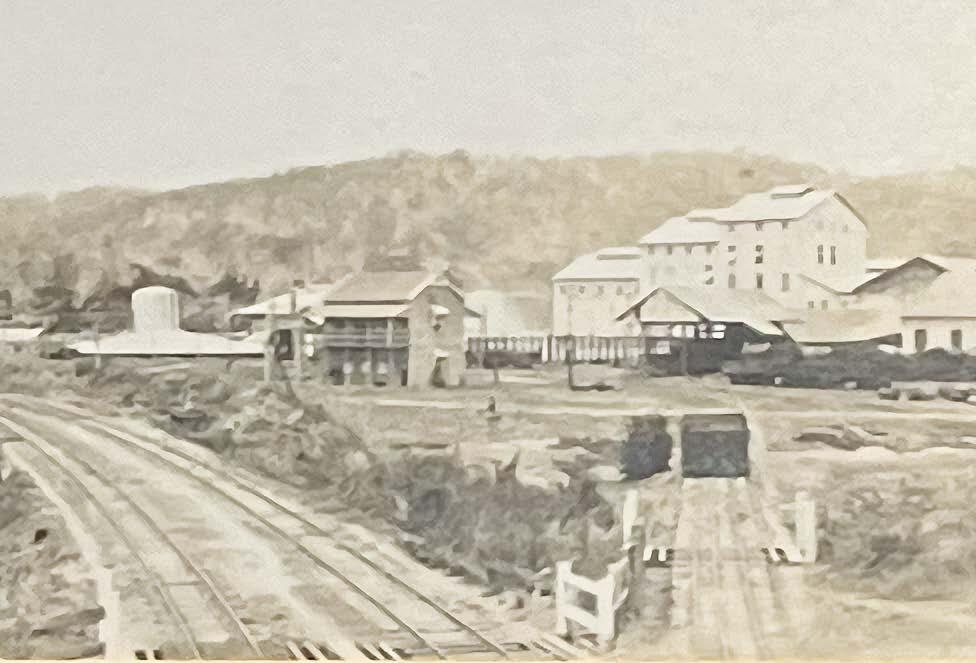
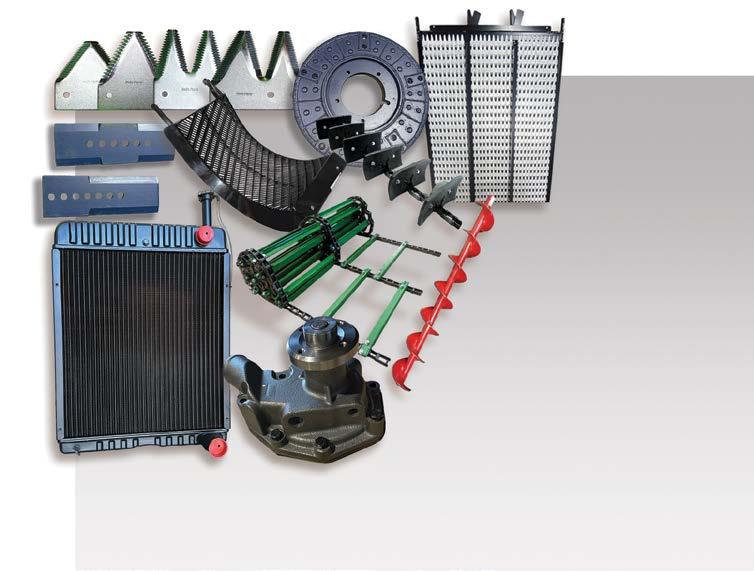

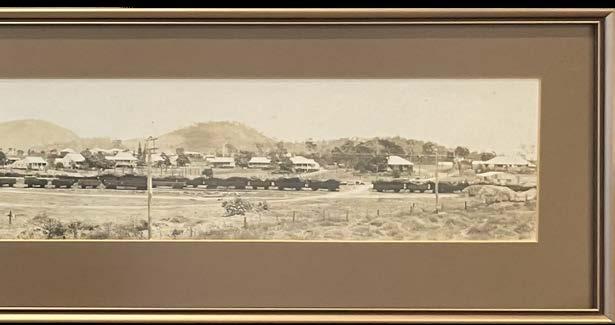

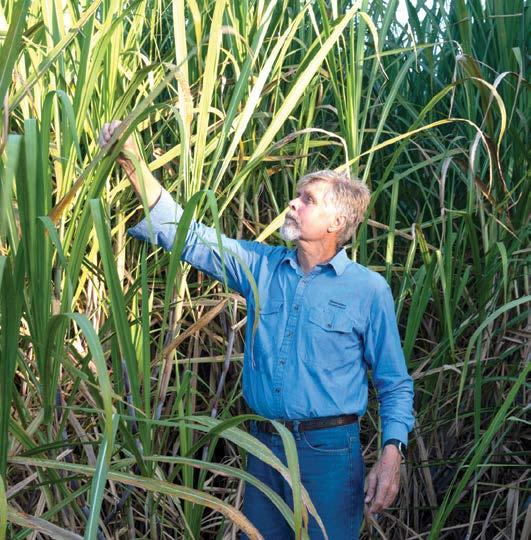
Advertisement
This photo has lived in the CANEGROWERS Brisbane office for many a year and as we move towards our centenary we wondered if growers could identify where the photo is taken.
This mill’s first crush commenced on 4 November 1896 and realised 371 tons 14 cwt of raw sugar extracted from 3579 tons of cane.
Today it crushes an average of 1.2 million tonnes of sugarcane a year to manufacture about 180,000 tonnes of raw sugar.
If you know send your answer to info@ CANEGROWERS .com.au
The first five correct answers will receive a CANEGROWERS prize pack. Good luck!
The Queensland Department of Agriculture and Fisheries (DAF) has local extension officers, agricultural economists and researchers throughout the Great Barrier Reef catchments to support you to increase on-farm profitability and sustainability, including:
• using AgTechnology such as drones and precision farm equipment
• using farm management and online tools
• designing contour banks and waterways
• optimising fertiliser requirements to crop needs
• efficiently applying pesticide
• reducing erosion and sediment loss
• retaining nutrients on farm.
Call us to find the best systems and solutions for your business. We’re here to help.

BY MICK QUIRK
A forum on ‘Agriculture in a Low-Emissions Future’ was recently hosted in Toowoomba by Chris Bowen and Murray Watt, the Federal Ministers for Climate Change and Energy, and Agriculture, Fisheries and Forestry, respectively.
They outlined their plans and hopes for agriculture’s ability to both further reduce emissions intensities and adapt to climate change. It was good to hear that the government will not impose targets or any other top-down plans for what should happen on farms. Rather, it wants to work with the sector to see what is possible and where funding support should be prioritised. They do not want to see any reduction in food or fibre production.
While most discussions at this forum were well-grounded, there remain unfounded expectations for agriculture’s capacity to capture carbon dioxide from the atmosphere as additional soil organic carbon and to retain this for 25 years or more.
Will all 80,000 farmers in Australia need to report greenhouse emissions?
CANEGROWERS is working to ensure this is not the case for sugarcane growers! The reason such a scenario is plausible comes from Federal legislation that will require all ‘large’ companies to annually report their climate-related financial risks and opportunities. This will capture all entities that are required to lodge annual reports under the Corporations Act and that also meet at least two of the following criteria (with respect to each company and any entities it controls):
Their consolidated revenue for the financial year is $25 million or more.
The value of consolidated gross assets at the end of the financial is $12.5 million or more.
Their number of employees is 50 or more at the end of the financial year.
This will include companies operating in the sugar milling, marketing, and refining operations as well as those in the financial sector and those supplying farm inputs. For all these entities, farmers will contribute much of what is
termed their Scope 3 emissions – the emissions not directly produced by an entity, like a mill or a bank, but forming part of its value chain or its finance portfolio. Scope 3 reporting is due to be phased in for these companies from 2025.
We are looking at options to rationalise this reporting so that individual growers are not having to respond to enquiries from multiple entities (e.g., mill, bank, resellers, fuel suppliers etc.) for an estimate of their farm emissions. The first task is to identify all relevant data sets, the ownership of these, and then develop options that will meet the needs of mill areas, as well as meeting the needs of entities that have grower clients across one or more mill areas.
CRCs are funded by the Federal Government to build research programs for national research priorities, and must work across existing research organisations and funding partners. CANEGROWERS met with the CEO of this new CRC for Net Zero in Ag. The CRC has been brokered by The University of Queensland and the Queensland Department of Agriculture and Fisheries, with a consortium of 73 partners across industry, government, and education. The Australian Government’s CRC contribution of $87 million over seven years is the largest in the history of the CRC program.
Our briefing included discussion if the CRC’s objectives structure and research programs. Unsurprisingly, there is a large focus on livestock research given methane from ruminants contributes 70% of agriculture’s emissions, and 14% of Australia’s total emissions. However, there will be significant work relevant to cropping, including more effective treatment of nitrogen fertilisers to inhibit nitrification and reduce release of nitrous oxide, a highly potent greenhouse gas. CANEGROWERS will seek ways for the sugarcane industry to participate in relevant projects undertaken by this CRC.


The Energy Information Service for Landholders (EISL) is a free phone service for farmers and landholders in Queensland providing information and guidance on a range of energyrelated topics
The service is available Monday – Friday from 8:30am – 5:00pm. Call 07 3329 7500
The Queensland Ag Energy Hub provides a centralised hub of information for Queensland farmers navigating the energy needs and requirements of their operations
www.qldagenergyhub.com.au

Receive an on-farm energy audit to understand and manage your on-farm energy use through the Energy Southern Queensland (EnergySQ) program. Available to farms in the Toowoomba, Western Downs, Goondiwindi, Southern Downs, Lockyer Valley and Scenic Rim regions Visit www qff org au/projects/energy-sq/ for more information
This program is funded by ACCIONA Energía as part of the QFF and ACCIONA Energía Carbon Savers initiative.
supporting farms to reduce their energy spend
Receive a free energy audit (for large users) through the QBEST Ag Program Eligible farms must be considered large energy users (100,000kWh per year in any year since 2020) Users above 80,000kWh per year may also be considered.
Contact Andres Jaramillo for more information via andres@qff.org.au or call 07 3837 4737.

BY BURN ASHBURNER
Sometimes I find it difficult to understand how to bridge the gap between the grower on the ground concerned about everyday issues and surviving, and events in Canberra and the National Farmers’ Federation (NFF) which look at emerging issues way ahead of today and dealing with research questions and actions which affect the whole of Australian agriculture.
I sometimes ponder on what we talked about as emerging issues 20 years ago and how many of those issues are commonplace to growers now. However, at the time they were “out there” ideas, Smartcane BMP and needing to provide sustainability criteria comes to mind.
I have just spent some time with the combined Rural Research and Development Corporations (RDCs) where collaborative projects between RDCs where showcased. The main objective was to emphasise the benefits of cooperating on some emerging issues in conjunction with other agricultural industries.
Sugar Research Australia (SRA) is the sugar industry’s RDC and they are part of some of the collaborative projects. They provide funding and in some cases management for projects. On their own, SRA would not have the resources to achieve much but combined with other RDCs they should achieve some better outcomes. The trick is to get these outcomes tailored to the sugarcane industry for extension and adoption.
I also attended the Emerging National Rural Issues (ENRI) Forum which in practicality brings together program participants RDC’s, Agricultural Innovation Australia, Department of Agriculture and NFF to consider emerging rural issues and progress potential collaborative research projects.
These are dealing with big national issues which at an individual grower or even CANEGROWERS or SRA level are mostly outside their circle of influence. Thus, skepticism as to whether a grower’s hard-earned cash which is funding some of this is getting a return.
The main themes were climate smart agriculture, people and workforce and trade and market opportunities. These don’t sound too out there as emerging issues, but the solutions are complex and dependent on world issues. We cannot necessarily predict or control these although we need to be prepared.
Climate smart agriculture is not all about climate change and adapting to this and being more resilient, although this is certainly part of it. It is also about better weather forecasting and tools which give quick, easy access to weather data for farm operations, irrigation and water use and manipulating the weather are issues for the future. There is also the real threat of a biosecurity issue with changing weather.
People and workforce is a global issue and is now affecting the sugarcane industry. It was mentioned we know how many sheep there are in Australia but don’t know how many people work in agriculture. For example, there is little research on the agricultural workforce needs which will assist in advocacy for immigration regulation or agricultural visas.
Trade and market access is changing rapidly with sustainability criteria imposed by trade partners and the need to comply with these. How do we cope with potentially increased demands which may not be realistic. These can also be used as trade barriers. Related to this is the social license issue. World disruption is always a possibility just look at what happened to fertiliser prices a few years ago.
Overall, there could be disruptions with climate variability, workforce changes worldwide and trade partners demanding sustainability on their terms. All of these are emerging issues which grower leaders need to be dealing with and this costs money.
CANEGROWERS are members of QFF and NFF to be able to have input into addressing some of these issues, with the combined effort of the whole of agriculture. Having strong leadership for sugarcane growers gives this a chance of being more effective.

BY MATT KEALLEY
In the sphere of membership organisations that represent agriculture, CANEGROWERS occupies a space that firmly focuses on sugarcane.
Our strength lies not only in providing a professional and cohesive voice for members, but also in our collective commitment to fostering a positive culture of collaboration and innovation. This creates a vibrant community driven by a shared purpose—to champion sugarcane growers, navigate the challenges and opportunities that influence their businesses and ensure the prosperity of our industry.
Farming is inherently unpredictable and changes in regulation, weather events and market fluctuations can affect our growers' businesses and their outlook. Yet it is these traits of resilience and perseverance that allows us to adapt and amplify CANEGROWERS collective voice in advocating for policies that benefit our members and the entire industry.
Advocacy, a cornerstone of our mission, is a testament to CANEGROWERS commitment to the industry in supporting growers and driving systemic change. It’s not a sprint but a marathon, requiring strategic persistence and unwavering dedication. Advocacy areas such as electricity pricing, biosecurity, and trade agreements are not shortterm fix and move on situations. It’s about building relationships, providing a well-considered solution to the problem and continually advocating for that position at a local, state, national and international level.
Through persistent engagement with policymakers and stakeholders, CANGROWERS influence public opinion and help shape policies that foster sustainable growth and equitable opportunities for all growers, regardless of size or scale.
For example, the signing of the Australia-UK Free Trade Agreement in December 2021 created a new market for Queensland sugar in the UK, the first time in 50 years. This premium market was opened by the hard work undertaken by CANEGROWERS through collaboration with the Australian Government, constant
engagement in the international trade arena and our ability to demonstrate sustainability via the Smartcane BMP program.
Moreover, our advocacy efforts extend beyond our membership, benefiting the broader sugar value chain and communities that live in the sugarcane growing regions. The voluntary administration of the Mossman Mill in November 2023 and the recent outcome to get the Mossman crush underway is testament to this. The months of intensive negotiations between CANEGROWERS Mossman, the local Douglas Shire Council, Douglas Chamber of Commerce, MSF Sugar and the Queensland Government, supported by CANEGROWERS engaging with the Premier and government ministers in Brisbane, has provided certainty for the 2024 season.
Policies promoting sustainability, rural communities and trade support growers, the industry and the communities in which they live. While it may be challenging to quantify these benefits exclusively to our members, our inclusive approach influences industry standards, bolsters economic stability and ensures growers can continue to farm.
In this interconnected sugarcane value chain, every player from major agricultural enterprises to smaller competitors relies on a robust foundation provided by CANEGROWERS By delivering unparalleled value through innovation, advocacy, and community support, CANEGROWERS builds trust and fosters enduring relationships which positions us as leaders in the industry. Customers and stakeholders recognise our expertise, professionalism and commitment to excellence and are willing to invest in CANEGROWERS knowing that it embodies integrity and forwardthinking solutions.
As the peak body in the sugarcane industry, our journey is one of resilience, innovation, and advocacy. By cultivating a positive culture, persevering through challenges, and delivering unparalleled value, CANEGROWERS not only secures the prosperity of our members but also drives meaningful change that shapes the future of the sugarcane industry and lays the foundation for a vibrant and resilient sector for generations to come.

BY CHRIS COOPER
It is quite common for growers to have minor unused roads adjacent to their farms.
In some cases, either knowingly or not, cane is grown without authority or permission on these unused roads or road reserves which can potentially expose the grower to prosecution or liability issues.
This article explains generally the steps involved in being able to lawfully use that road area as part of an adjoining growers’ farming operations.
Before a grower can use an adjoining road for their own purposes they must apply for a closure of that road if the road has not already been closed. There is a fee of about $314. The grower applying must be the registered owner of the farm that must share a common boundary with the road. The area of road that can be applied for is limited to that area that actually adjoins and does not include any part of the road that continues in either direction beyond the property boundary. A road can be closed temporarily or permanently. As part of the application for closure process the relevant road Manager, usually the local Council, must complete a form. Early discussion with the local council is always advisable. If the road is closed permanently then it is possible to make application to include that road area into the adjoining farm property.
A road licence can be issued over a temporarily closed road. There is a fee of about $314. The licence will give the grower the exclusive occupation of the temporarily closed road and able to be used for the purposes, and on the conditions, set out in the licence. The conditions attached to the licence will include that the licence can be cancelled at short notice (3 months) and without the payment of any compensation. The local council will need to complete a form and you should engage early with the council about your intentions before you embark on the application process.
Local councils do have the power to charge rates on road licence areas and usually there is a State rent also to be paid. It is possible for the conditions of a road licence to permit cane growing so if there are unused roads adjoining your farm then perhaps give consideration to applying for a temporary or permanent road closure and if temporary then consider a road licence application.
This article contains general advice only. The particular facts and circumstances of each case always need to be taken into account. The comments in this article are general in nature. For further free advice and information about this topic or other legal matters, members should contact their local CANEGROWERS office or please contact CANEGROWERS Legal Adviser, Chris Cooper on Free Call 1800 177 159
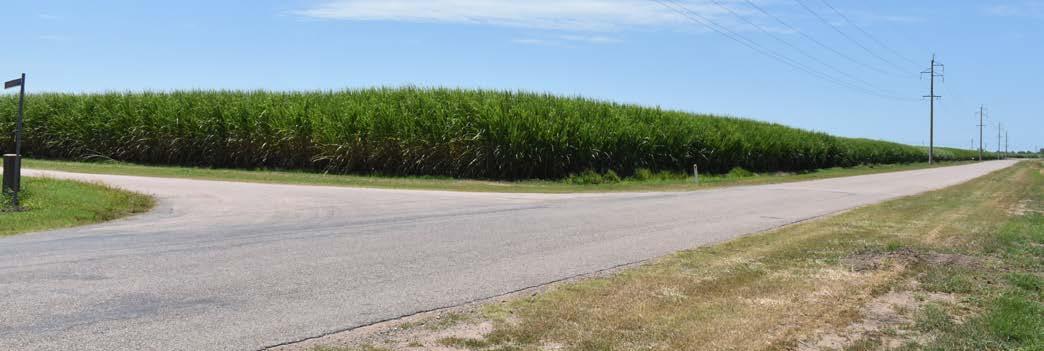
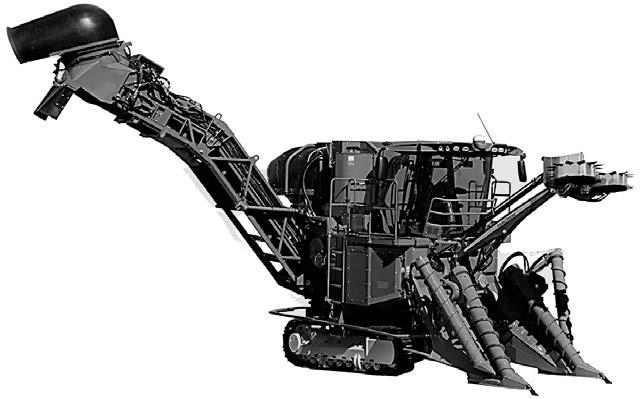

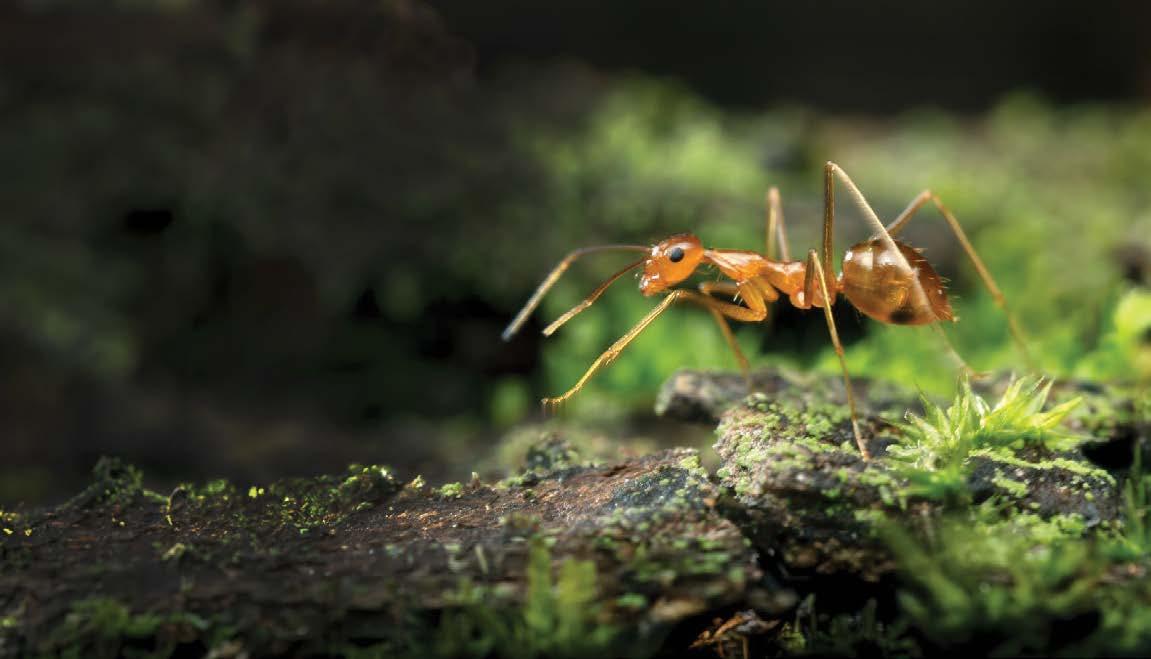
FIRST 5 LINES FREE* FOR CANEGROWERS MEMBERS!
Book online 24/7 at www.canegrowers.com au or email us at ads@canegrowers.com.au
Next deadline is 17 July 2024
2012 GX Landcruiser ute, Reedmans steel tray, under tray side water tank, steel bullbar and side rails, UHF radio, red arc brake controller, canvas seat covers, 331,000km. Comes with RWC. $45,000 + GST. Tully district. Ph: Santo 0418 181 646
2 x 440/65 R24 tractor tyres $1,100 inc GST each. 2 x 540/65 R34 tractor tyres $2,100 Inc GST each. All four types as new only done 500 hrs. Ph: 0427 665 759.
36 plate case 770 offsets, 30 inch discs $44,000 and HBM plant cutter with topper $4,400. Ph: 0448 345 139
Billet planting equipment. 1990 Toft 7000 Trac. Underslung B-Box. Rubberised rollers and optmised. New Ifit 2 blade diff chop. New steel hood line. 2 1990 elevator Austoft powerhauls. HBM single row billet planter, new dip, chains and drive shaftes and bushes, rear axle steer, staines fert boxes, 2 cameras. 2 500L and 2 100L tanks and and frame. 1PTO pump. All equipement in good condition and ready to work. Photos available. $150K (plus GST.) Ph: 0428 682 886.
Massey 4608 excellent condition 2,000 hrs. Ph: 0418 972 705.
USED/NEW MACHINERY FOR SALE
SECONDHAND 8970
JOHN DEERE TRACTOR
NEW CYCLONE SLASHER/MULCHER All machines located in Ingham.
DIESEL FITTER POSITION AVAILABLE
PARTS MANAGER POSITION AVAILABLE Contact us via phone or email for further information.
SNG Machinery Sales
90 Origlasso St, Ingham 07 4776 6003 (Parts) 07 4776 1066 (Sales) admin@sngmachinerysales.com www.sngromano.net.au
* As a FREE service to CANEGROWERS members, Australian Canegrower will print suitable classified advertisements UP TO 5 LINES FREE, FOR ONE ISSUE ONLY. A charge of $5. 50 will apply for each extra line or part thereof. A charge will apply for advertising of non-cane growing activities. Advertisements must relate exclusively to cane farming activities, such as farm machinery, etc. Advertisements from non-members are charged at $11 per line incl GST. Only prepaid ads will be accepted.
1997 Cameco CHT 2500 full track cane harvester for sale $50,000 inc GST Ph: 0432 150 364.
3 tonne fertiliser stool splitter stainless steel box 1.5–1.8 metre spacing $25,000 (+GST). Ph: 0429 912 135
2006 CASE IH JX109OU in good condition. Always serviced – 6,800 hrs $24,200 (inc. GST) Ph: 0427 665 759 Tully area.
Tractor TE20 good condition $3,300 GST inclusive. Tractor AV International 130 with fertiliser equipment and scarifier $3,300 GST inclusive. Tractor AV International 140 with spray equipment $3,500 GST inclusive. Ph: 0428 183 307.
Howard CH 2000 rotary hoe 4.2m wide, hyd 5 tyne ripper hillers new blades. $45,000 plus GST. Ph: 0429 912 135
2016 John Deere R4023 self propelled sprayer 1,500 hrs, 2200L tank, 85 foot boom, GPS ready. $235,000 plus GST. Ph: 0429 912 135
Hooded 4-row sprayer $5,000; S Tyne multi-weeder $1,000. All prices ONO. Ph: 0407 597 179
MF102 cane harvester, good condition, $5,000. Ph: 0428 644 135.
Great Plains 6m 3PL planter, currently set up for zonal planting however have all units for solid planting, $20,000 + GST. Ph: Peter 0427 976 416.
10 Blade Faggy chopper box for 3510/3520. $6,000 + GST. Ph: 0437 434 280
Heavy duty Tatu offset disc 25 plate $50,000. Ph: 0439 965 921
Power Harrow / Airator for soil – fits on a rotary hoe $900. 2 old fertiliser box implements – each $300. 186 Ross Road Deeral. Ph: 0412 968 434
Harvester for sale. Babinda area. 2010 JD 3520 track harvester, 10,000 frame hrs. 1,200 hrs since engine rebuild. 10 blade Twyford choppers. Base cutter box, turn table and chopper box, 300 hrs use. D5 tracks. Ready to go. $180,000 & GST. Ph: 0439 676 186
Celli rotary hoe 120 inch good condition. $6,000 + GST ONO. Front bucket for 580E backhoe $800 + GST ONO. Ph: 0407 675 361
Valley centre pivot 8 span all running gear tires & rims $1,000 gearboxes $750.00, electrical motors & gear boxes $1,000 each ONO. 6 Irvin spray legs $80.00 each, 2x Torsion axles v-shape 2,200kg each $500 ONO. Ph: John 0418 198 177
Plant cutter $200; cane stripper $500; binder billet planter $18,000; 2 x Newton 4T Tipper bins $4,000 each – All plus GST. Ph: 0429 653 461.
6 Cyl. Perkins turbo-charged motor, mounted on trailer to Kelly & Lewis water pump
$5,500; 6T Newton bulk fertiliser bin $2,500. Please call after 7pm or txt 0402 686 714 / 0407 144 637.
2012 Case 8800 fulltrack cane harvester fitted with Trimble GPS and new walking gear. All in good condition. Near new 6t side tipper. Mulgrave area. Ph: 0407 160 673
Kubota zero turn ZG 222 with catcher 48" cut. Fiat 980 2WD-3,500 hrs, Fiat 1000 2WD –5,000 hrs, John Deere 4040 2WD – 3,600 hrs, Chamberlain JD 4080 2 WD – 5,000 hrs, Case 2590 2WD – 5,700 hrs, 6 tonne tipper bin, Silvan Euro Spand CX2 spreader, portable bulk bin, Bunning Lowlander Mk 40-60 Ag spreader (near new), complete tracks to suit cane harvester, and fuel trailer tank. Mulgrave area. Ph: 0407 160 673
1980 Ford 7710, 4WD, 4 cyl, canopy, 5,323 hrs, $21,000. 1960 Inter tractor 574, 2WD, 4 cyl, canopy, $9,500. 1960 Inter tractor 574, 2WD, 4 cyl, canopy, 4891 hrs, $7,950. 1975 Cat D3 dozer, angle tilt blade, 4 cyl, hyd tow hitch, root rake blade, 4,836 hrs, $51,900. 2010 Kubota ME9000, 4WD, cab with trimble with GFX-750 GPS, 5,031 hrs, total for both $47,900. 2018 Kubota, 4WD, M7040, 4 cyl, canopy, 482 hrs, $46,900. Ph: Mark 0427 017 717
One tonne bag lifter $2,200 GST inc. Ph: 0448 345 139
1968 International Farmall 756, 2WD, Tricycle, 6 cyl, 5,560 hrs, $5,950. 1993 140″ Howard Rotary Hoe, crumble roller, serial 060301095, $24,500. 2006 Case iH 7700 full track harvester, Iveco 10.3L 6 cyl motor, 2912 hrs, $156,000. 1976 rear feed whole stick planter, s/s fertiliser boxes & chutes, 2x200L spray tanks with 4 sprays, hydraulic ram trailer hitch, $4,250. 1990 8-ton bulk fertiliser bin, 3 easy chute doors, 4 stands for storage, $5,150. Ph: Romy 0467 198 700
Fertiliser bin M.S.W, double row, 4 tonne stainless bin, with double compartment and 4 cutters $25,000 (inc. GST). Ph: 0400 729 457
Heavy duty two tines (legs) to suit rotary hoe $1,000 inc GST. Ph: 0438 988 858
2022 Case 9900 cane harvester. Ph: Craig 0436 332 044
Liquid fertiliser applicator croplands rate controler, adjustable centres and new pump. Ph: Craig 0436 332 044
Service unit/fuel tanker, flat 115-90 4wd tactor set up with hitch & brakes. 4500L diesel fuel tank. 2000L aluminium water tank, many more extas. Phone for more details. Ph: Craig 0436 332 044
Bonel whole stick harvester / Double fan cane stripper / Four trailers. Ph: 07 4056 1742
2 x 480/70R34 tractor tyres. 5 years old. 95% rubber. 1 tyre needs minor repair. $1,000 (inc GST) for both tyres. Ph: 0408 728 072 (Tully).
Hydraulic spraying machine – High rise diesel motor, 1600L stainless steel tank $25,000 + GST. Ph: Tim 0428 183 307
Toft 6000 harvester $20k Liquaforce 5 row applicator $25k stainless steel 25,000L tanker on tandem axle trailer $15k 10 tonne side tipper $12k kubota 8580 $22k grubbers ploughs plus more call Rodney. Ph: 0429 984 920
Hodge bulk bag lifter – $700 (plus GST). Ph: 0439 965 921.
Olympic 20.8.42 65% $500+ GST; front end loader with 4 in 1 bucket, blasted and 2pac painted, resembling required $4500+GST Ph: 0437 434 280
Babinda area – 2006 Case 7700 track harvester. 10.3Lt Iveco motor 3,500hrs. Very good condition. Ph: 0467 198 700 AH: 4067 1498
2012 Case 8800 fulltrack cane harvester fitted with Trimble GPS and new walking gear. All in good condition. Near new 6t side tipper. Mulgrave area. Ph: 0407 160 673
Rotocult 1 shot cultivator $7,000 ONO + GST Ph: 0149 988 158
Hi-rise spray tractor MF35x. Unfinished project comes with 1,200L S/S tank, boom and droppers are made but not fitted 5 rows or 7 over the top. Has power steering not fitted and a new ROPS, canopy and seat. Lots of other extras included. $18,000 plus GST ONO. Heavy duty frame with Coulters off the old Aqua-Ammonia applicators.
Could easily turn into ripper coulter implement. $500 plus GST. Ph: Jason 0417 622 129 caruzin@bigpond.com
Herbert River 4 tonne Newton tipper hooked to 4280 Chamberlain tractor. Will separate if required. Ideal for billet planting. Ph: 0416 174 014
2017 Isuzu dmax dual cab with alloy tray, 67,400km, new tires, RWC, one owner in VGC. $43,000 ONO. Ph: 0438 821 683
LD3 Moore Scoop 4WD in fair condition, runs good, brakes need help. Ph: after 6.30 pm 07 4777 6148
1997 Fiat Agri Genius 190. Good condition, one owner, Hyd toplink, hubs for dwels – 5,200 hrs. Ph: 0419 666 544
Case Magnum 315 2012 dual tyres front and rear with weight pack, Trimble GPS, UHF and quick hitch 210,000 plus. Howard rotary hoe CH 2000 4.7 meters with crumble roller 40,000 plus. Ph: Gavin 0408 782 419
L & L Wilkinson Haulage Pty Ltd widening drop deck and A trailer; transporting cane harvesters; farm machinery; farm implements; pilot. Ph: Lee Wilkinson 0427 474 065
Massey Ferguson 178 tractor with multi-power wet brakes, low hour fully reconditioned engine, good tyres all round. 800L Hardy boom spray tank. Ph: 0417 612 883 for price.
Ford 8310 4wd cab tractor. With autofarm A5 GPS System. New dash. 70% rubber $30,000+ GST. Ph: 0417 158 656
Massey Ferguson 8110 4-wheel drive with cab, 135hp, only 2,636 hours in good condition. $55,000 inc GST. Celli Tiger spike hoe, 2.5m wide with hydraulic crumble roller and oil cooler. VGC. Don Mizzi 741 model on Fiat 750 special turbo plus MF102 half-tracks to suit. 12t self-propelled 6x6 elev infielder. VGC. 6t side tipper on Leyland tandem. GC. Mackay. Ph: 0438 606 578.
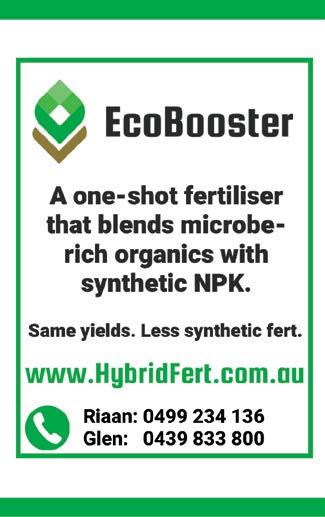
2 x planting 2.5t tipper bins $3,000 each ONO. Ph: 0437 649 296
6 rear wheel weights for New Holland TM155. Ph: Keith on 0448 057 574 or Brock Shailer on 0439 113 511
Trailco 110 x360m hard hose irrigator $23,000 inc GST. Koumala. Ph: 0429 027 377.
2 Tractor tyres 18-4-38, 75% rubber – $600 each. 1 plant cane or return grubber 14 tine 1200. A Hodge plant cutter & two fan blower –$1,000. 1 Yedder 6 wheel on 3-point linkage frame for plant cane. $1,800. Ph: 0448 605 722
185 Altas Copco compressor on towable trailer, just had new turbo fitted and cup link between motor and compressor, cost $6,000 to repair. Ready to go – $8,500. Good unit for blowing down harvesters or sandblasting. Sandblasting unit also available and hoses –$2,500. Ph: 0488 605 722
2x new Trelleborg TM800 high speed 480/65R24 tyres, 1,000L home-made trailable steel fuel tank, 1,000L steel fuel tank Ph: 0458 121 546.
Hodge side dresser fertiliser box – with 4 front fertilizer coulters, 2 centre rippers with crumble rollers and centre drawbar at rear. Also can be used as a soil buster. Dimensions 1.7m to 2.05m. G.C. In the Mackay area. $9,000 + GST. Ph: 0408 874 974 or 0418 874 974
John Deere 6520se fwd 5,100 hrs, new ac power quad. Tyres 70%. Presents as a very clean and tidy tractor price. $60,000 inc GST neg. VGC. Ph: 0438 424 538
Pegorano power harrow 100 inch. $3,500 incl GST. Ph: Koumala 0429 027 377
125mm Southern Cross hard hose irrigator in good condition. 350m hose. $30,000 incl GST. Ph: 0428 768 533.
Various farm implements: 3 row McLeod multi weeder rake. Two tyres & rims to suit fiat 1000 and 1300. Agri/Master; CB538 Size 24.5/32R/1 12 ply. Ph: 0417 612 883 for price.
GPS autosteer kits and base station can be fitted to any tractor, FJ Dynamics brand, $14,000 excl GST. Ph: 0401 847 162
T7040 New Holland 8,200 hrs and 16 tonne Aus quip elevator air/ hyd controls. Farm sold. Ph: Cameron 0427 378 526
60HP Western Electric motor, foot & flange
$2,750. Ph: 0417 158 656
Double row McLeod fertiliser box with various sprockets for various applications. Ph: 0417 612 883 for price.
Massey Ferguson harvester 102 base cutter box. Ph: 4954 1174 for price.
Elevator chains for 102. Ph: 4954 1174 for price.
Pegoraro 120 inch rotary hoe in good condition. Ph: 0417 542 783 for price.
3 point linkage cane topper. Ph: 0417 542 783 for price.
4,000L of 50/50 diesel/petrol mix suitable for Firebug burners or parts washing. Ph: 0411 196 860
Water meter never used Siemens brand (no before or after the meter pipework required) 150mm flanged, table D/E Ph: 0411 196 860.
6 and 8 inch cast iron flanged gate valves. New never used. Ph: 0411 196 860
2 fan stripper $500. Moller single chain planter $4,000. Roberts 6T goose neck trailer $5,000. Grubber & box $300. Hodge upright planter $3,000. Ph: 0408 776 336 OR 4959 1765 after 7pm.
Plant cane cultivator 2 x 1.6m row w/ 3 weeder rakes and tines $1,320 inc GST. Land plane w/ 4m hyd. blade $3,300 incl GST. 2x1.6m row cultivator w/ 10 x 30ml tines $1,320 inc GST. 4 wheel trash rake $1,110 inc GST Ph: 0408 761 463
2011 John Deere 3520 Trac harvester. Machine has new tracks, new elevator chain and floors, 2 x new plastic extractor hoods. Some pumps rebuilt and some replaced. Engine rebuilt and plantary hubs replaced. Machine repainted –very tidy machine. Ph: 0413 584 728
7485 MF Tractor Tier 3 with Dyna VT transmission and hi lift double 6T side tipper. Ph: 0413 698 922 or 0427 561 072. Located Bundaberg.
102 Massey Ferguson cane harvester $1,500. C670 Chamberlain 4 ton HPM tipper bin
$5,000. Ford 5000 Tractor $6,000. Hodge fert. bin $1,000 Ph: 0403 064 708
New Holland T6070 Tractor, $185,000 neg Challenge FEL, quad remotes, excellent condition, 450 hrs. Ph: Justin 0415 626 715
Rotary hoe 90 degree blades to suit Maschio G Series rotary hoe. Brand new. These normally sell at $20 each new but are for sale at $6 each. There are currently 72 left hand and 72 right hand blades available. Ph: 0402 993 500
Massey Ferguson anniversary 105 harvester $7,700 (incl. GST); trash incorporator $7,700 (incl. GST); Bonel 3-row cutaway $6,600 (incl GST); 3-point linkage offset 16 plate $2,300 (incl GST). Ph: 0419 577 110
Quinco side dresser fert. box, Bonel side dresser fert. box, Croplands boom sprayer, Bonel plant cutter, Don stick planter, 3 row folding cultivator frame, 3 row plant cutaway, 5 row plant marker 1.8 ctrs. Ph: 0473 989 961
Brand new Howard AH4000/255 2.5m heavy duty rotary hoe w/wheels $44k inc GST. Rocky Point. Ph: Greg 0421 277 126
1 x secondhand slasher must be in good condition, 7 or 8 ft width. Ph: Joe 0488 010 030
HBM billet planter. Ph: 0429 651 233
2 off JD rims (flange type 16in x 42in) with or without tyres. Size 480/80 R42 to suit JD7520 12 bolt 855PCD cast centre. Ph: 0407 963 040 Mareeba district.
Rotary hoe 120 inch to 140 inch, prefer Howard. Spray unit with Irvin boom or similar 600L plus. Ph: Roger 0419 788 376 Maryborough area.
7 tyne Hodge ripper with 1 inch tynes and bolt on points. Ph: 0400 743 314
Shredder topper suit John Deere or CASE or TOFT loader. Any condition. Ph: 0413 584 728
18.4-38 tyre/s. Ph: 0458 121 546. Plane Creek area.
Wanting 100 to 120 hp 6 cylinder 4x4 tractor. Eg, (Ford tw 20., Fiat, case ih, basic old tractor. Mossman, Herbert, Mackay (for Ingham) Ph: Lloyd 0439 375 301
Double or Triple tipper bin for NSW planting season. Happy to transport from QLD for the right unit. Contact: mildon.park@bigpond.com or Richard 0412 156 622
Ferguson TE 20 with V8 Ford flattop engine, ½ tracks to suit Ferguson tractor, TE 20 Ferguson with reduction gearbox, Chrighton whole stick harvester with or without tractor Ph: 0427 565 511. Mulgrave area.
2.5 tonne or similar tipper bins suitable for billet planter. Ph: John 0427 563 318 Mulgrave area.
1996 to 2004 Toft/Case 7000, wheeled cane harvester. Ph: 0420 600 943
Austoft/Case wheel harvester 1995 to 2006 model – any area. Ph: 0417 193 385
4.5" Layflat hose in good condition. 200-250m. Ph: 0419 952 119
New Holland 8970 tractor suitable for wrecking. Contact 0419 710 280 or tctownley@bigpond.com
All panels for Fiat 780. Ph: 0438 421 217 Mackay / Sarina area.
1x Ford 6600 or Ford 7600 two-wheel drive tractor. Ph: 0439 591 455.
6 FT 3 Point linkage grader blade in reasonable condition. Ph: 0478 228 375. Area Bundaberg.
11-12ft roller – Herbert River area. Ph: 4776 1386.
Hi-clearance spray tractor. Must be a trike and must have air con cab. Send photos and information to 0407 639 985.
Tractor with FEL 100-140 HP up to $50k. NQLD area. Ph: Peter 0427 760 449
Cane farm Halifax total area 217 ha, CPA 126.4 ha. 2 minutes from Taylors Beach & 20 mins from Ingham CBD. Includes large machinery shed which has 3 phase power & water plus 2 smaller sheds. Price $1.62 million. For inspections contact Felix Reitano Real Estate on (07) 4776 5007 or email felix@reitano.com.au
288 acres 35 minutes south of Maryborough 200 acres under cane. Permanent creek with underground mains 4 bedroom timber home 12x9m shed with 3 phase power. Ph: 0407 398 852
Want to buy farm in Victoria Plains, Eton, Pleystowe area. Ph: 049 00 29 387
Wanted permanent purchase Lower Mary River water allocations on Mary River, Tinana Creek and channel pipeline sections of the scheme. Ph: 0427 930 696.
